
How do you even begin to rank the best actors of the 21st century? The world of cinema is so broad and diverse; attempting to assign any kind of definitive numerical value to an actor’s career is ultimately arbitrary and subjective.
Nonetheless, that’s exactly what The Independent’s culture team have attempted to do. We’re doing this both as a means of paying tribute to some of the actors we most admire, and because it’s the kind of arbitrary, subjective exercise that many movie fans enjoy reading – even (or especially) if they vehemently disagree with the decisions.
To make this list, however, it was clear that parameters needed to be established. Here were ours: first, this list must only take into account films, not TV series or stage performances. Second, it should only take into account films released post-2000. If you’re wondering why this or that actor was omitted from the list, the year 2000 cutoff might well be the reason. (Some of the greatest living actors, such as Meryl Streep, Al Pacino, and Gene Hackman, are casualties of this rule.)
There are many factors that an actor is judged upon – range, consistency, depth, choice of roles – but no exact formula. Some of these inclusions, and omissions, may not be to everyone’s liking, but they were not arrived at flippantly – and there was plenty of disagreement even among the writers of this piece.
With all that said, please enjoy The Independent’s ranking of the 60 greatest actors of 21st-century cinema (so far)...
60. Tom Cruise
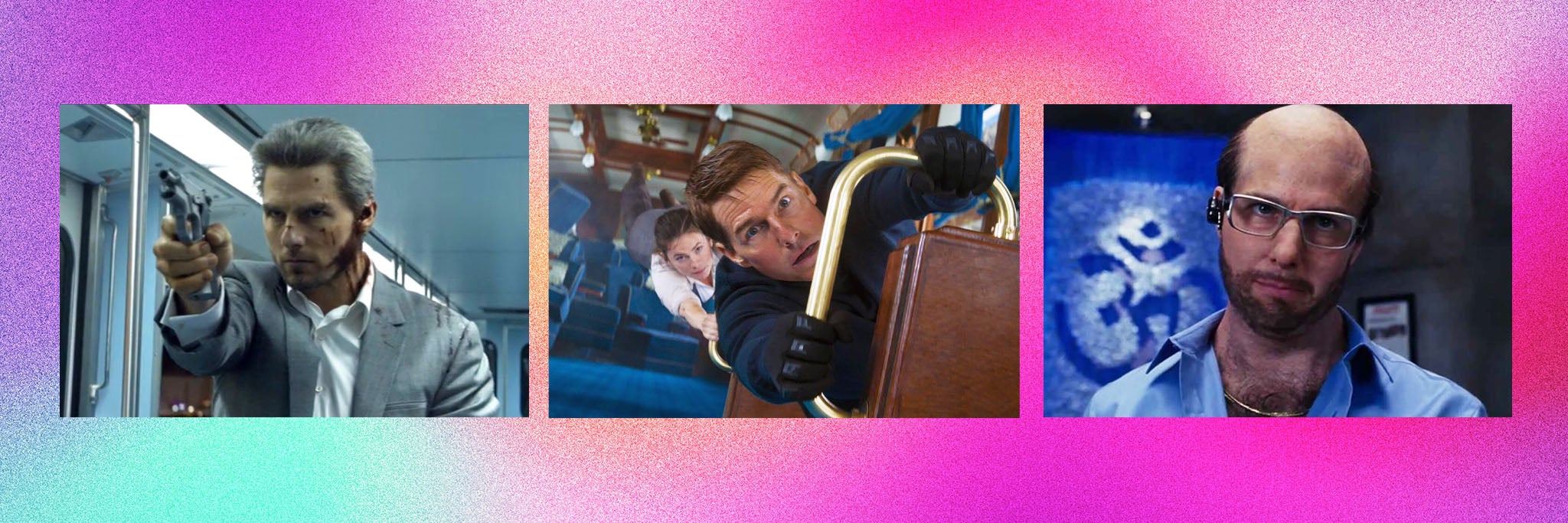
When it comes to the craft of acting, Tom Cruise’s best work belongs to the previous century – with arguably his two finest performances (Eyes Wide Shut and Magnolia) coming in 1999. Over the past quarter-century, however, Cruise has ossified as one of the last thoroughbred Movie Stars, a sort of hallowed statesperson for cinema itself. On camera, meanwhile, he’s a force of nature, throwing himself into audacious physical stuntwork with a steel-eyed zeal. Like Mission: Impossible’s Ethan Hunt, his best-known character, Cruise might well be “the living manifestation of destiny” – an actor without precedent, beyond knowability, and impossible to stop. Louis Chilton
59. Amy Adams
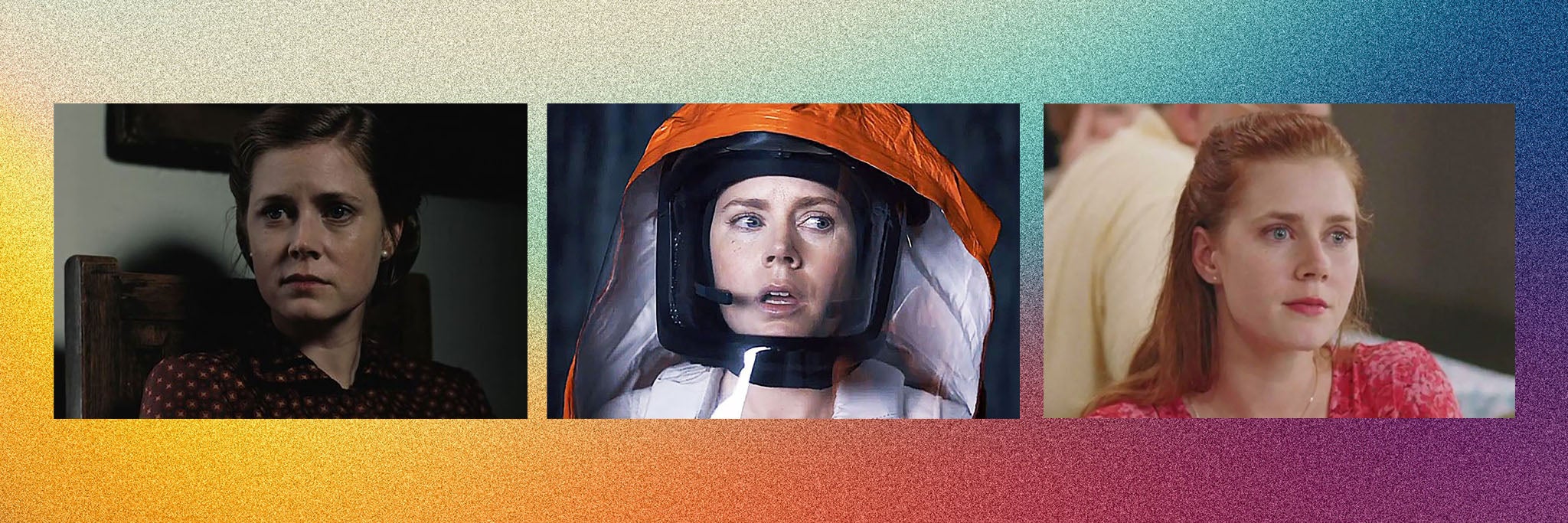
Amy Adams began this millennium quietly, with bit-parts in teen dramas; in the years since, she’s carved out a reputation as one of Hollywood’s most nuanced actors, reliably delivering lived-in, authentic performances in everything from Junebug to The Master. The word “luminous” gets thrown around a lot when describing actors, especially female ones, but it goes some way to capturing her appeal in six (yes, six) Oscar-nominated roles. Her best work to date is 2016’s Arrival, a gut-punch portrayal of grief wrapped up in what’s ostensibly a sci-fi movie – a performance that sneaks up and leaves you bereft for days. Katie Rosseinsky
58. Stephen Graham
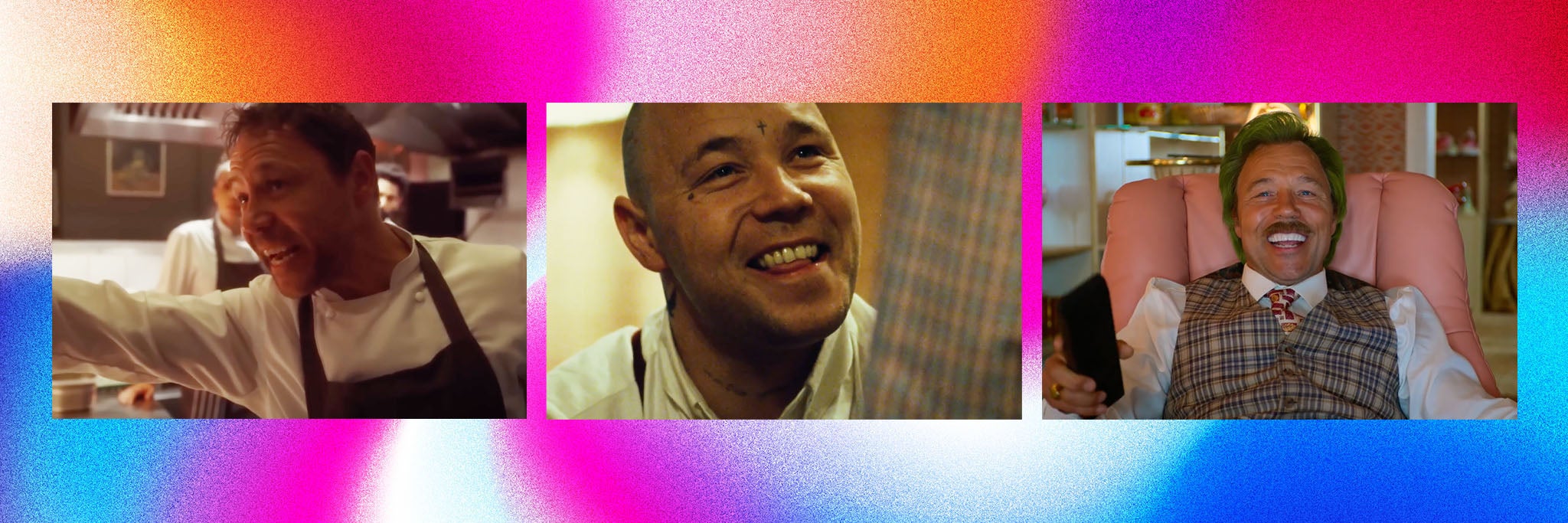
Watch Stephen Graham on screen, and you might feel your heart rate quicken. A building sense of unease. Or you might get the urge to wrap him up and take care of him. With his career-defining role in This Is England as a pugilistic National Front skinhead, Graham showed he could be explosive and frightening; his vulnerability was exquisite in the one-shot film Boiling Point. He’s an actor of rattling intensity, but also considerable range – whether it’s baring his comedy chops in Pirates of the Caribbean and Matilda: The Musical or holding his own as an American gangster in the Scorsese epic The Irishman opposite Robert De Niro and Al Pacino. Ellie Harrison
57. Hugh Grant
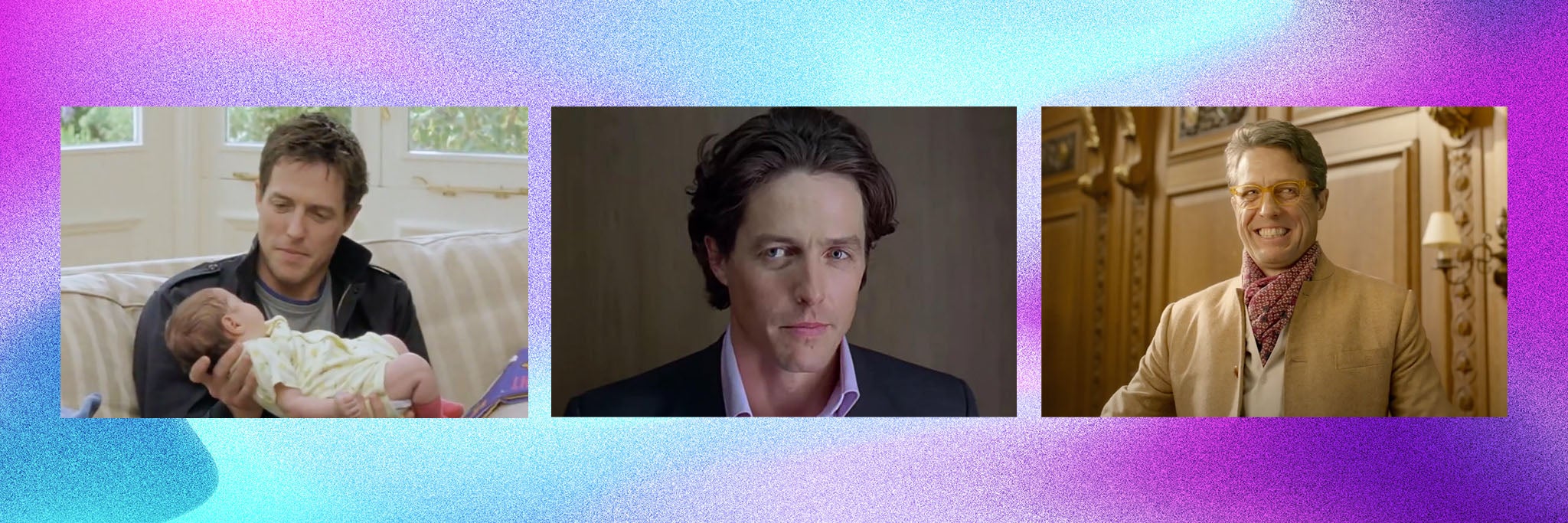
Modern appraisal of Hugh Grant tends to focus on his turn to onscreen villainy – the eerie menace of Heretic, the grandiose flamboyance of Dungeons & Dragons: Honor Among Thieves, and the seminal Paddington 2. But there’s been a comic mean streak in Grant’s characters for much of the 21st century, threads of appealing sleaze and pomposity. There were the Bridget Jones films, the marvellous About a Boy; nothing screams Y2K Hugh Grant more than pairing him off as an ageing cad with an exasperated American girl-next-door type. If anything’s changed in the Grant discourse today, it’s that people have woken up to how great he’s always been – even if Grant himself, forever his own harshest critic, may disagree. Adam White
56. Catherine Keener
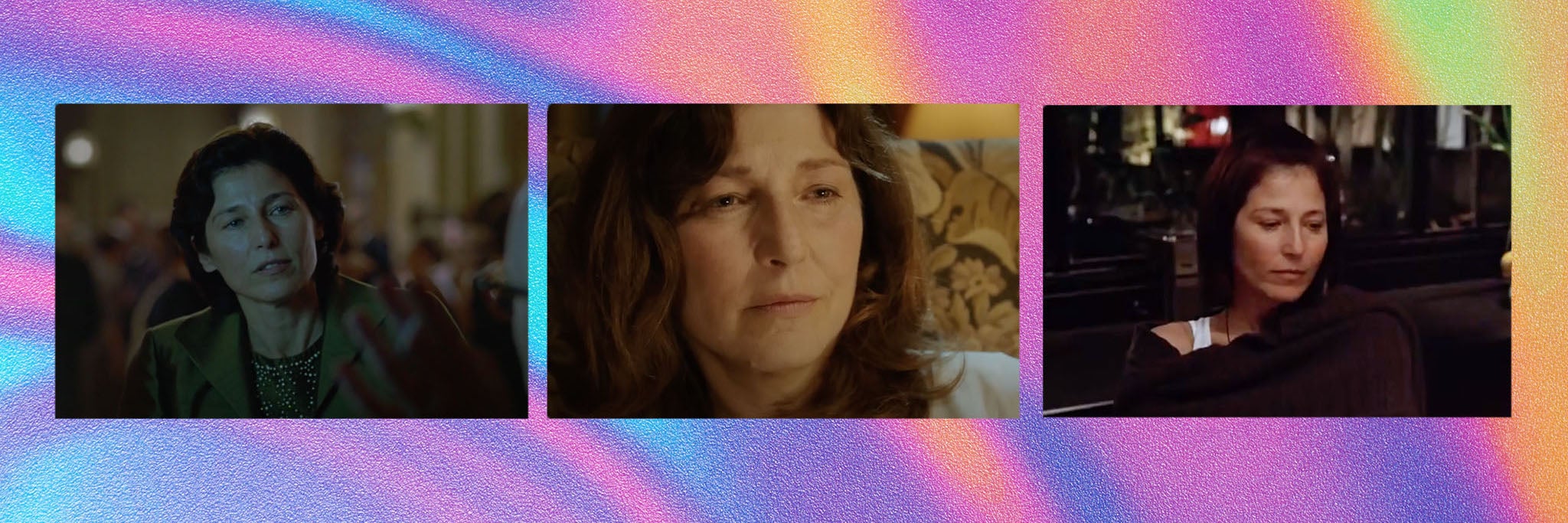
If you’re in need of a great supporting actor, who can fill in the blanks of an opaque side character by sheer force of presence, you go to Catherine Keener. Her power on screen – as a sharp, empathetic Harper Lee in Capote, or the teacup-wielding family matriarch in Get Out – lies in her ambiguity, that sense of a person who is guarded and secretive, but rich in inner life. The filmmaker Nicole Holofcener has always captured it best, giving Keener repeated – and rare – starring roles in the likes of Lovely & Amazing and Friends with Money, often as conflicted wives and mothers, women who are neurotic and restless and ever so slightly delusional. That she works so sparingly, and rarely does interviews, only adds to her mystique: who is Catherine Keener? And why is she always so good? AW
55. Matthew McConaughey
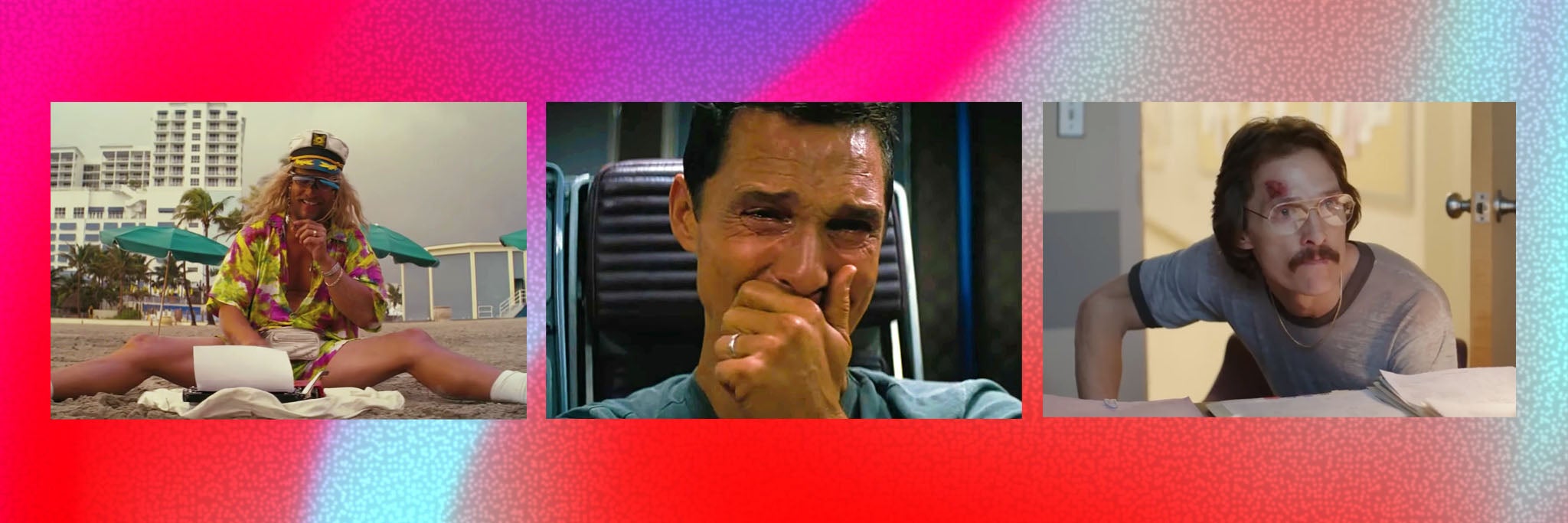
If you’d told someone back in the mid-2000s that Matthew McConaughey would feature on a list of the Best Actors of the Century, you would have been laughed out of town. But such was the force of the “McConaissance” – the Texan actor’s 2010s career revival, encompassing indie darlings (Mud), an Oscar win (Dallas Buyers Club) and a stint as a formidable A-list leading man (Interstellar) – that now it seems almost a given. It’s unsurprising that McConaughey was unable to maintain the juggernaut momentum of his initial comeback, but he’s continued to show his distinctive worth as an actor in projects such as Harmony Korine’s cult gem The Beach Bum. No one does laid-back Southern charm quite like him. LC
54. Sally Hawkins
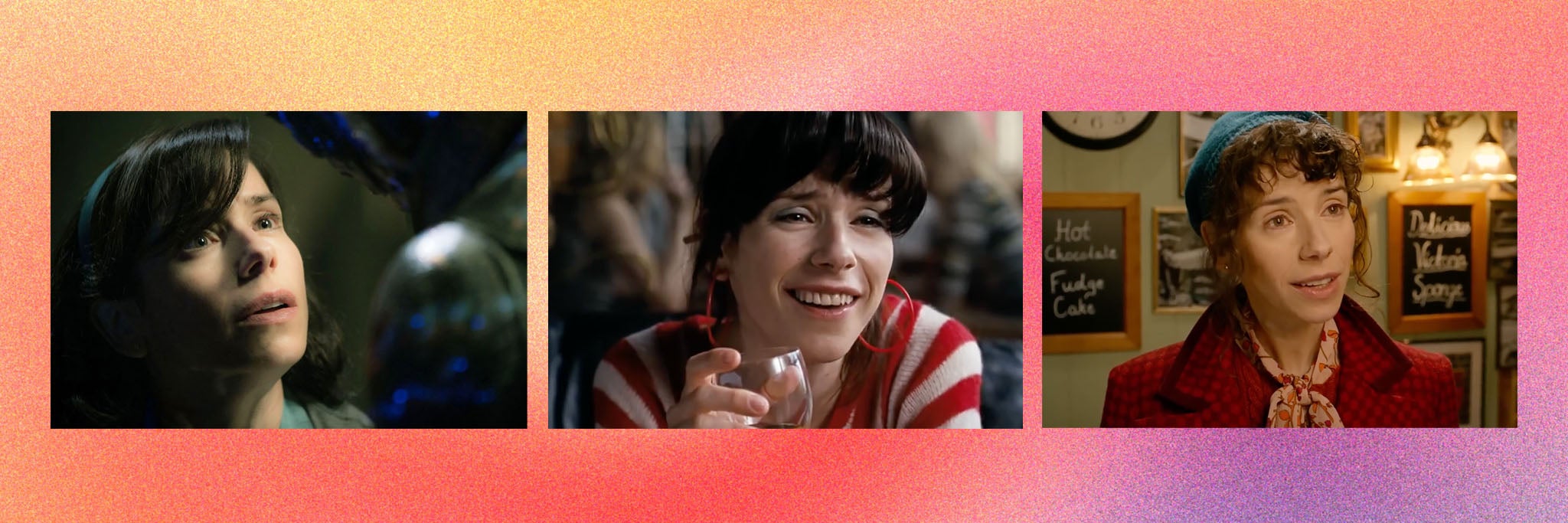
There is a special place in acting heaven reserved for people who graduate from shoddy British TV (Casualty, Doctors, Little Britain) to the hallowed halls of Hollywood. And Sally Hawkins has done just that. A fruitful relationship with legendary director Mike Leigh culminated in her performance as cheerful learner driver Poppy in 2008’s Happy-Go-Lucky – a role that demonstrated Hawkins’s infectiously endearing screen presence, leading to her casting as appealingly domestic figures in films like Paddington and Wonka. But Hawkins is more exciting when allowed to stretch her talents: she is Oscar-nominated twice, as guileless Ginger in Woody Allen’s Blue Jasmine and as the swooningly romantic mute protagonist of Guillermo del Toro’s The Shape of Water. Nick Hilton
53. Ralph Fiennes
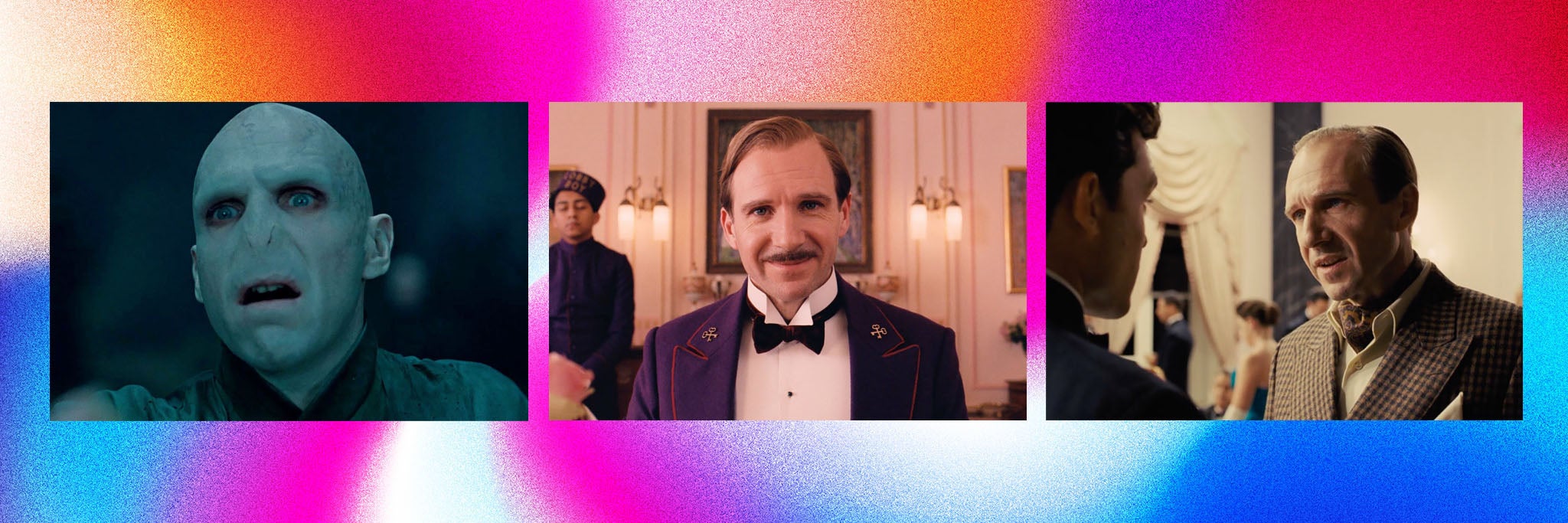
With his aquiline features, Ralph Fiennes will be associated for some with his incarnations of evil: the Nazi commandant in Schindler’s List last century, as well as Lord Voldemort in the Harry Potter films. But in recent years, his famous intensity has given way to a series of roles that demonstrate his comic ability: frustrated assassin overlord Harry in In Bruges, tortured Golden Age director Laurence Laurentz in Hail, Caesar! and foppish concierge Gustave in The Grand Budapest Hotel. He works, consistently, with some of the best directors in the business – and it is no surprise they want to work with him too. NH
52. Lesley Manville
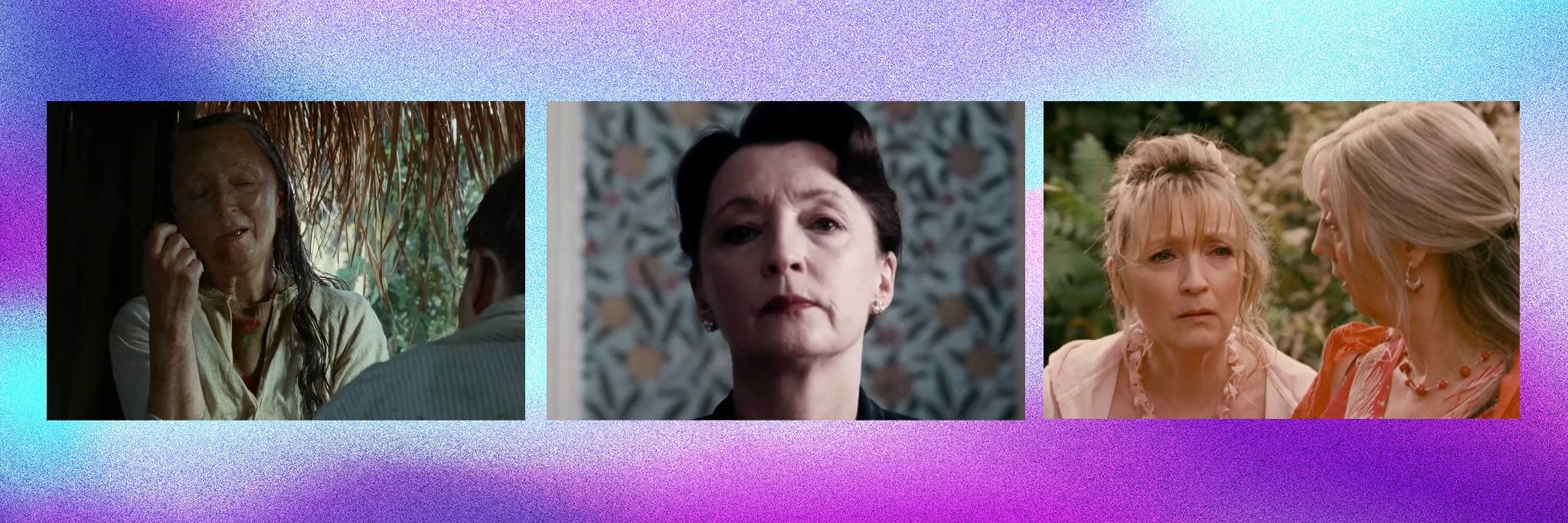
Manville’s talent could have taken her anywhere. She could have been a soprano, a triple threat in musical theatre or even a soap queen (she was in 80 episodes of Emmerdale) before finding her mojo in the late Seventies at the Royal Court Theatre. This century, however, Manville has come into her own as a screen actor, gaining a reputation as Mike Leigh’s muse because she appeared in so many of his films. But being cast in Phantom Thread (2017) finally brought her deserved wider recognition. Director Paul Thomas Anderson was so stunned by her performance as the indomitable sister of Daniel Day-Lewis’s highly strung couturier that he came to an inescapable conclusion: “Put the camera on Lesley Manville. She can do no wrong; you could ask her to do anything, and she could do it.” Anyone who’s seen the film will surely believe it. Chris Harvey
51. Andy Serkis
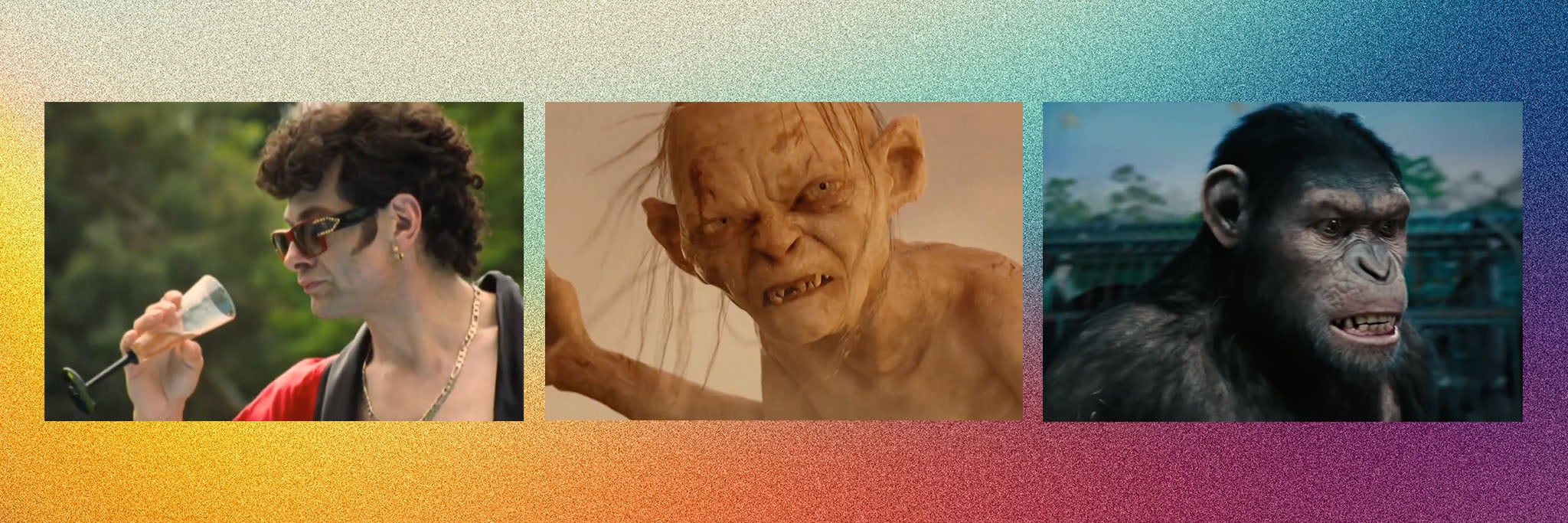
The face of Andy Serkis may be one of the least recognisable on this list – but that’s no slight on the British actor’s work. For the past three decades, Serkis has been a hugely significant pioneer of motion-capture acting, pushing the technology into uncharted territory. As The Lord of the Rings’s scraggy jewellery obsessive Gollum, he redrew the limits of what CGI characters could do; as Planet of the Apes’ indomitable primate Caesar, he redrew them again, managing a depth and emotional precision that no one would have thought possible from a CGI ape. Add to this a range of punchy character performances both in and out of mo-cap (The Adventures of Tin Tin; Sex & Drugs & Rock & Roll), and there’s no knocking Serkis’s credentials. LC
50. Olivia Colman
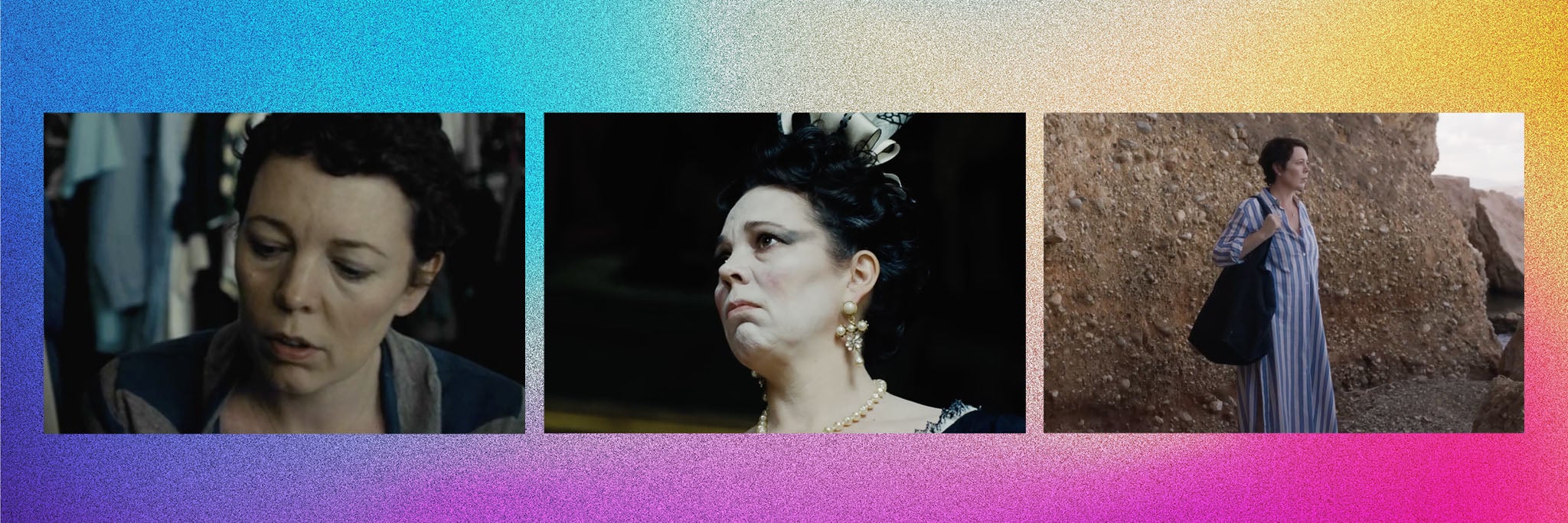
Watching Olivia Colman enjoy Hollywood success over the past few years has sometimes felt like seeing your favourite little-known band suddenly hit the big time: you’re thrilled for them, obviously, but you keep wanting to remind everyone that you’ve been a fan since the early days. After years as Peep Show’s long-suffering Sophie, Colman got her film breakout in Tyrannosaur (2011) with her wrenching turn as a woman in an abusive relationship. As with all her best performances, there’s a real warmth to her work in this indie movie, but also an emotional acuity that’s sometimes hard to watch. Director Yorgos Lanthimos clearly saw something special in her, casting her first in his dystopian dark comedy The Lobster and then in topsy-turvy period drama The Favourite as Queen Anne. It was a role that allowed Colman to show her full range, comically grotesque one moment, heart-rendingly vulnerable the next. KR
49. Sandra Hüller
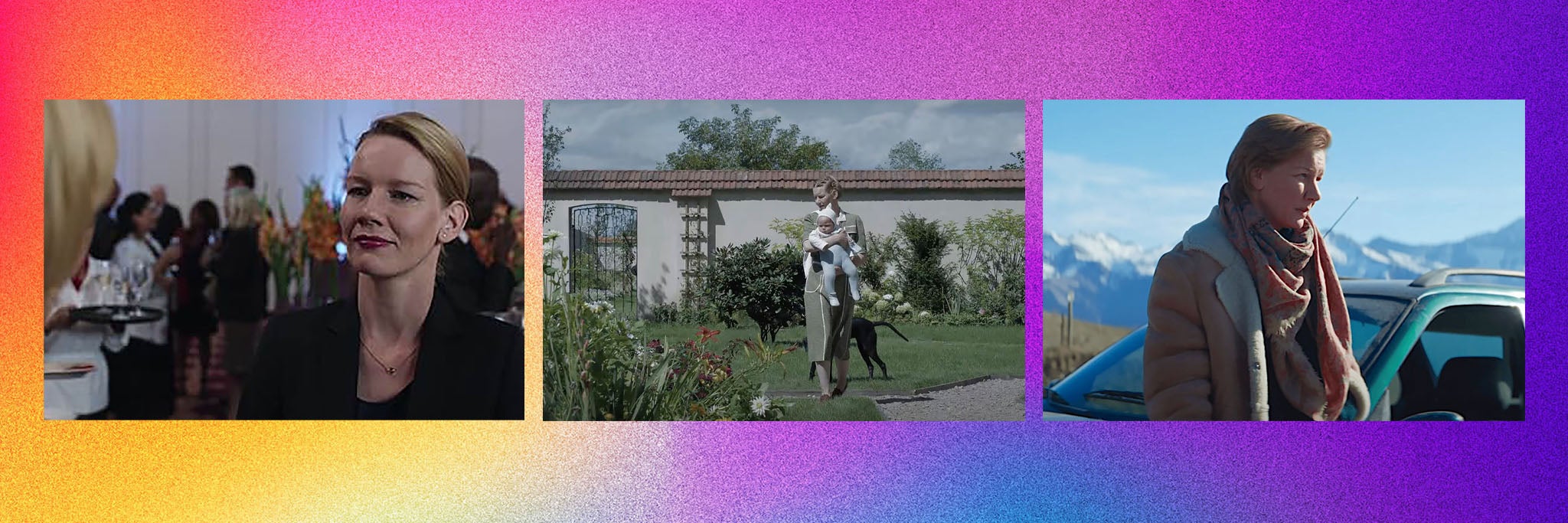
In 2024, Sandra Hüller became the first German woman to be nominated for the Best Actress Oscar since Luise Rainer in 1937, and just the third ever. Not much fuss was made of this – perhaps because her performance, as a complicated writer accused of mariticide in the chewy legal drama Anatomy of a Fall, was so plainly and obviously great that it felt, to some, a foregone conclusion. But in truth, it may not even be Hüller’s best: she’s a vision of venal evil in Holocaust drama Zone of Interest (2024), heartbreakingly unhappy in the tragicomic Toni Erdmann, and potent and stirring as an epilepsy sufferer in Requiem (2006). LC
48. Tom Hanks
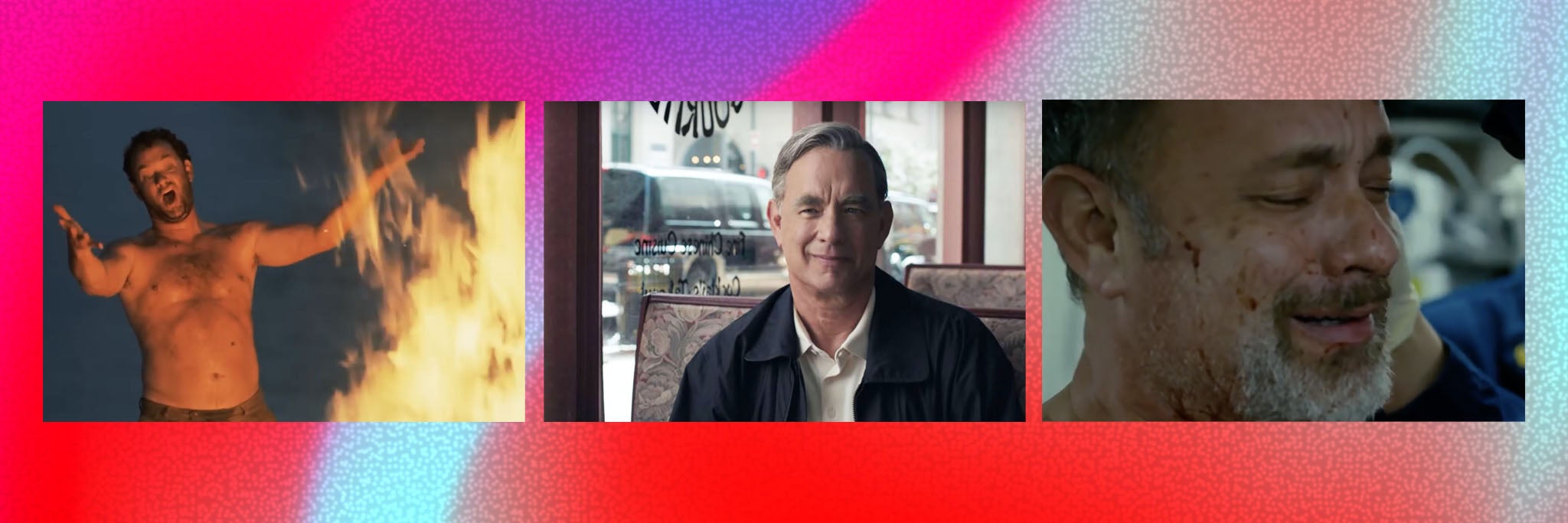
Tom Hanks may have peaked in the Nineties, but his post-2000 body of work is nothing to be scoffed at. He’s given tremendous mid- and late-career performances in a slew of films from major directors: Steven Spielberg (Catch Me if You Can; Bridge of Spies), Robert Zemeckis (Cast Away), Clint Eastwood (Sully), Marielle Heller (A Beautiful Day in the Neighbourhood) and Wes Anderson (Asteroid City) among them. If you’re after big, showy swings, he’s surely delivered – look at the assortment of roles he plays in the Wachowskis’ Cloud Atlas. If you’re after something subtler, he’s got that too. The breakdown at the end of naval thriller Captain Phillips may be the finest acting Hanks has ever done. LC
47. Léa Seydoux
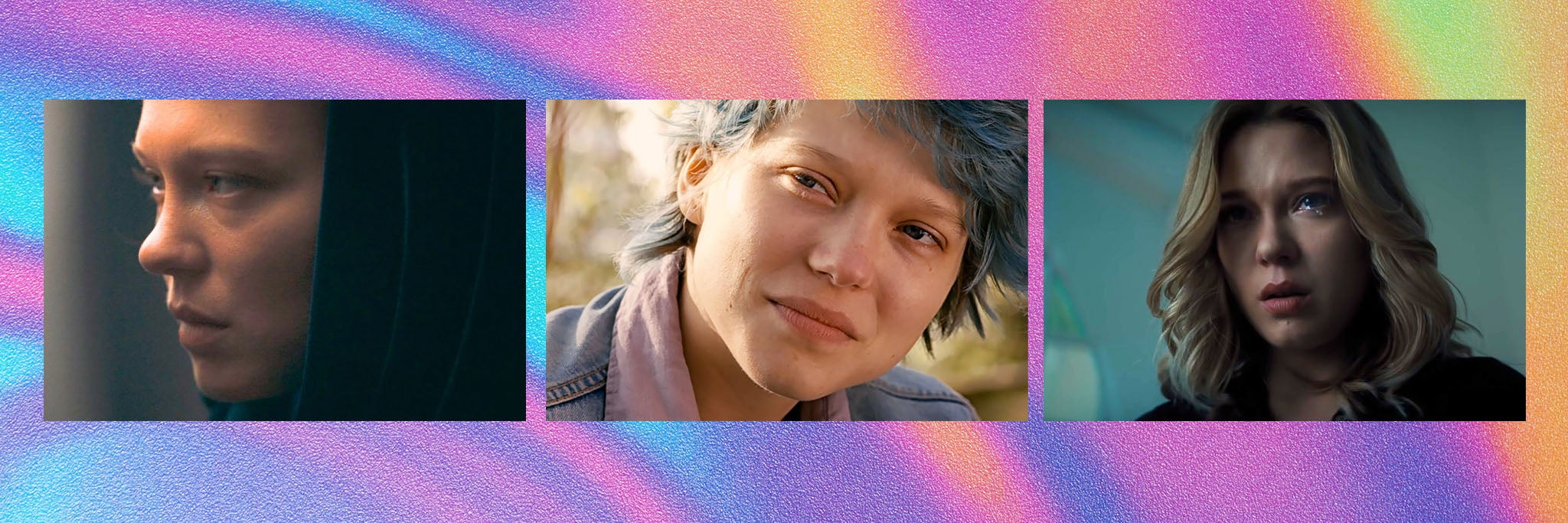
Where some European actors seem to pivot their careers on a concerted effort to “make it in Hollywood”, Paris’s Léa Seydoux has always seemed to drift between continents on a whim – popping over to the US for films such as Inglourious Basterds and Mission: Impossible – Ghost Protocol, jetting back to France to hoard acclaim for her turn in explicit lesbian romance Blue is the Warmest Colour, then sauntering back over the Atlantic for supporting roles in auteurist pet projects. There’s a reason it seems this way, of course – Seydoux is a hugely consistent but malleable actor, able to adapt her style for action thrillers (Spectre), black comedy (The Lobster), austere sci-fi (Dune: Part Two), or whatever else is thrown her way. It’s no wonder she’s in demand pretty much everywhere. LC
46. Lupita Nyong’o
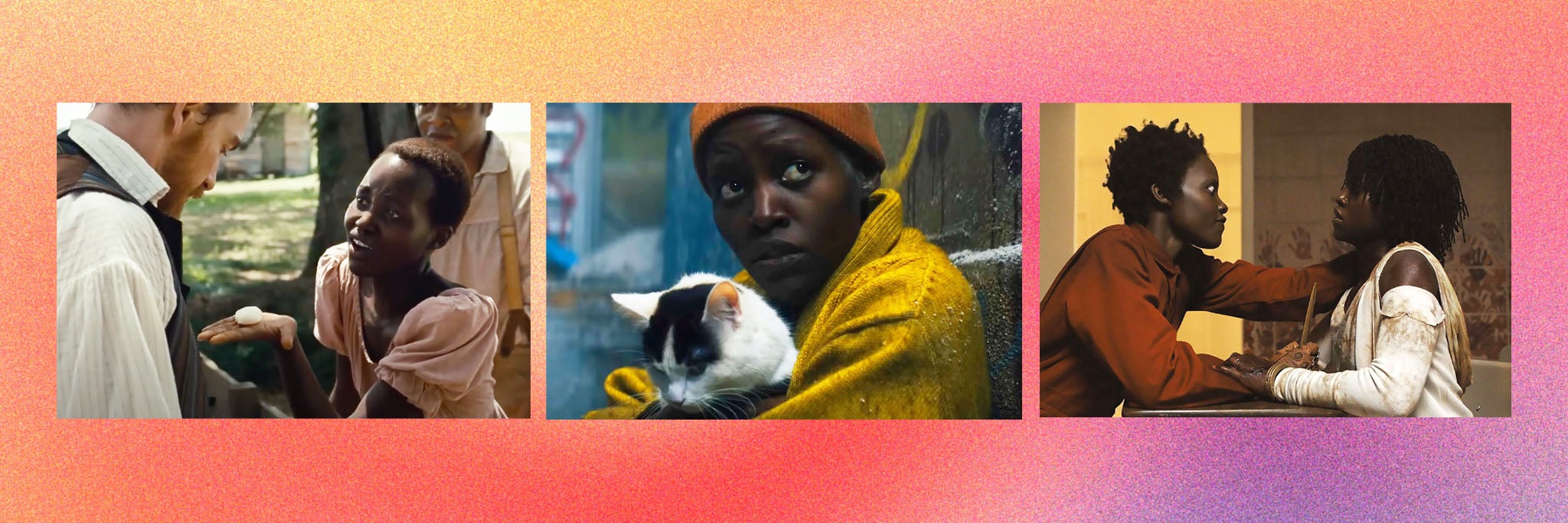
One of Hollywood’s greatest recent discoveries, Lupita Nyong’o seemed to emerge fully formed, granting heart, desperation and tragic poise to her very first feature film character: the shackled Patsey in 12 Years a Slave. Since winning her Oscar, there has also been an experimental playfulness to her choices that leans into her theatrical training. She’s been a disembodied voice in three Star Wars films, mostly silent in A Quiet Place: Day One, and played a wolf and a robot elsewhere. She makes bold decisions. Us, Jordan Peele’s terrifying doppelganger chiller, may be Nyong’o’s finest hour so far: she unlocks a haunted strength in one half of a pair of sibling duplicates, and an eerie, grisly sadism in the other. AW
45. Kate Winslet
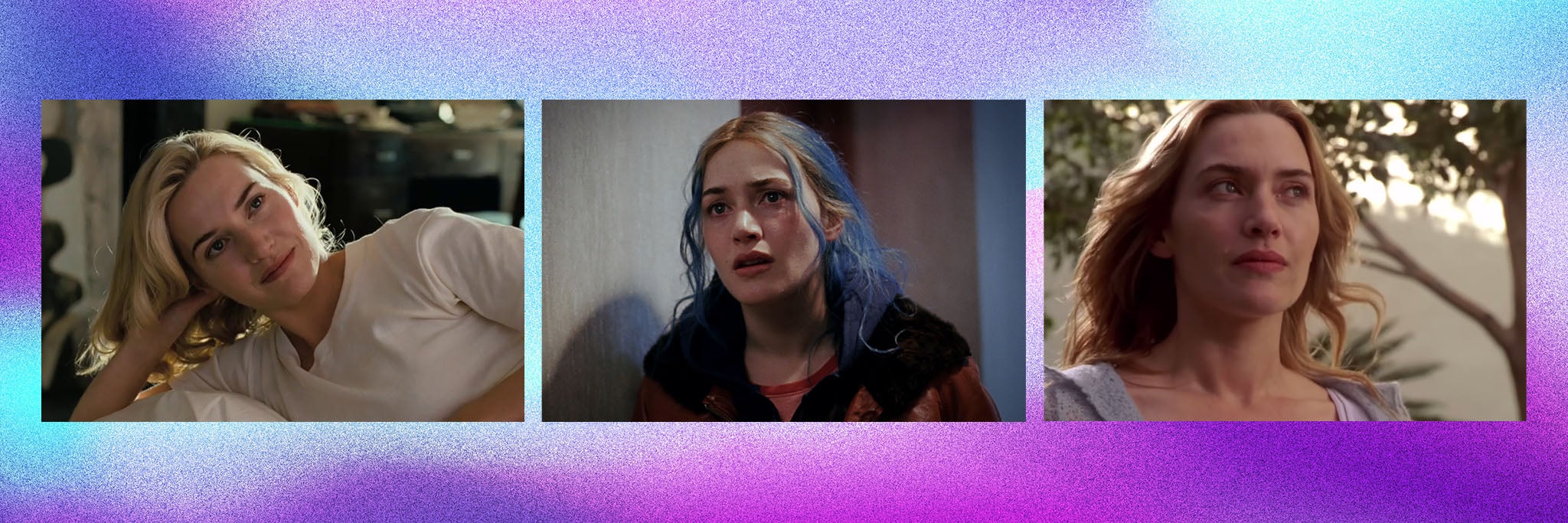
There are plenty of stars that would allow themselves to be happily pigeonholed after the colossal success of a blockbuster like Titanic, but Kate Winslet is not one of them. Yes, she’s donned corsets for period dramas since then, but she’s also excelled in off-beat sci-fi, playing a woman who opts to get her memories removed after a failed romance in Eternal Sunshine of the Spotless Mind, in real-life drama, bringing emotional heft to Steve Jobs, and even in festive romance (would The Holiday be a seasonal must-watch without her?). There’s a bracing lack of vanity to her work and no one plays a complicated woman bristling against expectation like she does. The Reader may have earned her an Oscar in 2009, but I’d argue that her other release from that year, Revolutionary Road, is her best film performance yet, playing a housewife whose ambitions are relentlessly shattered. KR
44. Robert Downey Jr
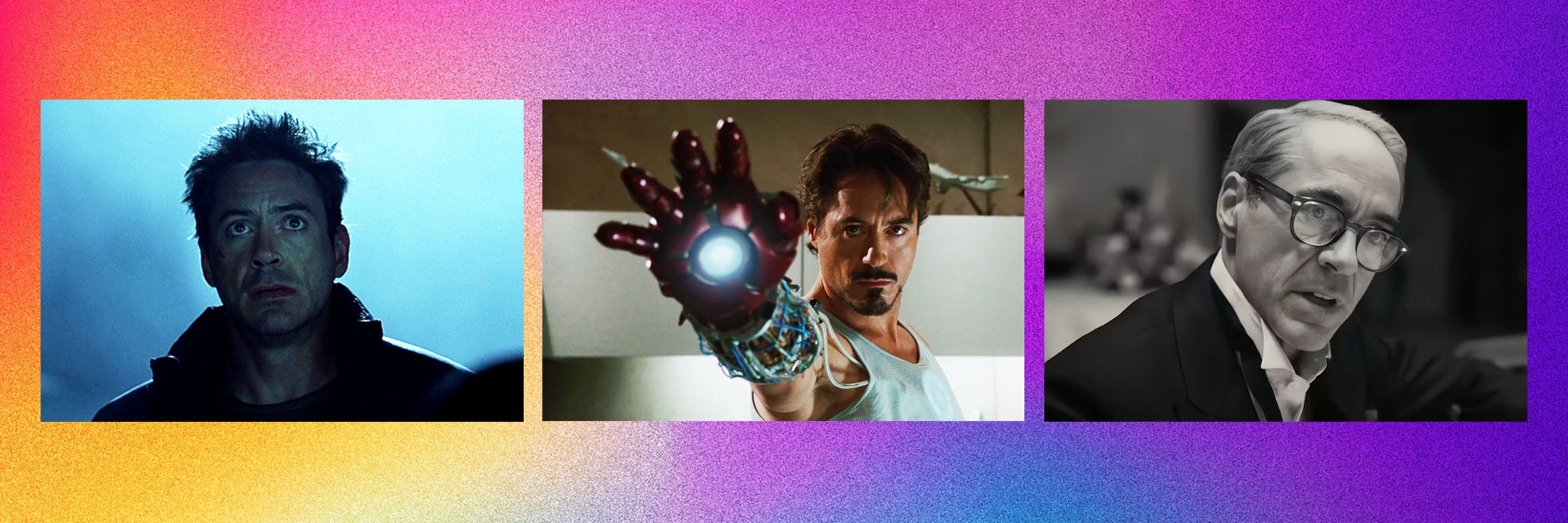
That Robert Downey Jr will likely go down in cinematic history as Iron Man is unfortunate – not because he’s not good as the silver-tongued superhero (he’s great – and you could easily argue that the entire landscape of modern blockbuster cinema would look different without him), but because the sheer magnitude of that role threatens to obliterate everything else, not least Kiss Kiss Bang Bang. The 2005 LA thriller was Downey Jr’s comeback after years of personal troubles As a small-time crook turned crime-buster, he was totally believable – and watchable, funny and flippant; perfectly at home within Shane Black’s caustic script. Robert Downey Jr’s recent Oscar win for Oppenheimer, meanwhile, was recognition of his heavyweight talents after more than a decade stuck in the Marvel machinery. Annabel Nugent
43. Andrew Garfield
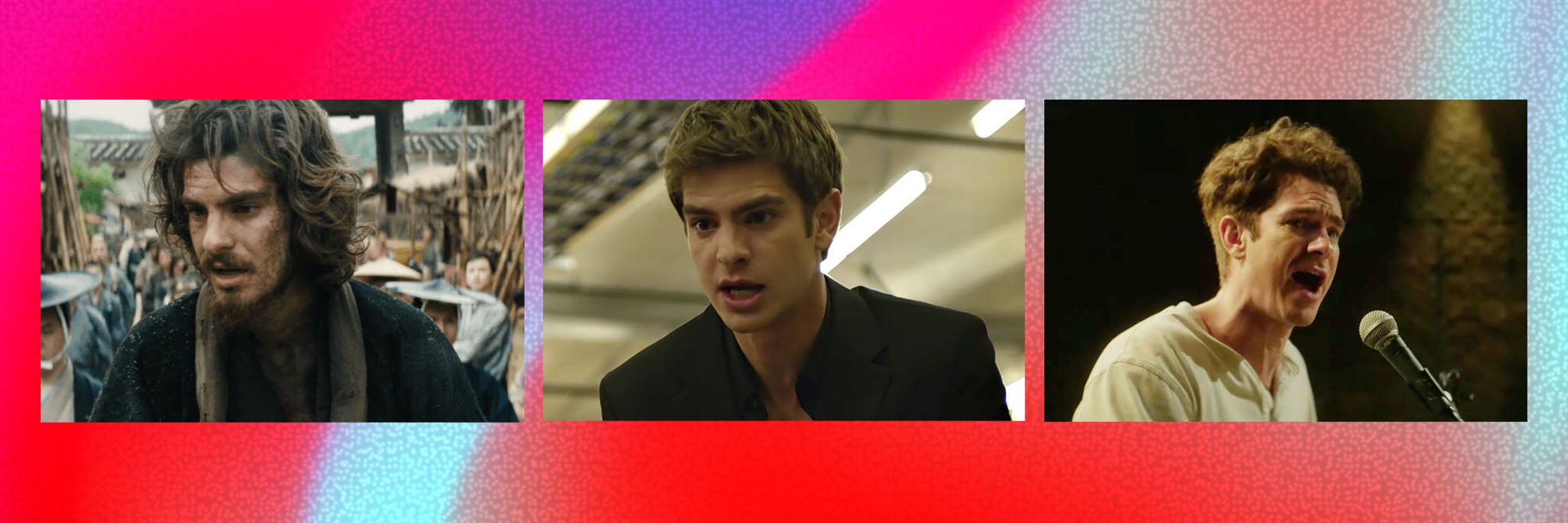
With apologies to Bill Murray and Chris Pratt, there’s only room for one Garfield on this list – and we’re going with Andrew, hands down. The British actor has always been a shrewd and likeable presence on screen, ever since breaking through in The Social Network – a film that required he master the tricky rapidity of an Aaron Sorkin script. What’s impressive is how he’s continued to push himself, giving increasingly strong, and varied, performances in films such as the neo-noir oddity Under the Silver Lake, religious Scorsese epic Silence, and bittersweet musical Tick, Tick… Boom!. In the otherwise dismal Spider-Man: No Way Home, Garfield is, incongruously, deeply moving, while the 2024 weepie We Live in Time sees him anchor a two-hander with Florence Pugh – no mean feat. LC
42. Tom Hardy
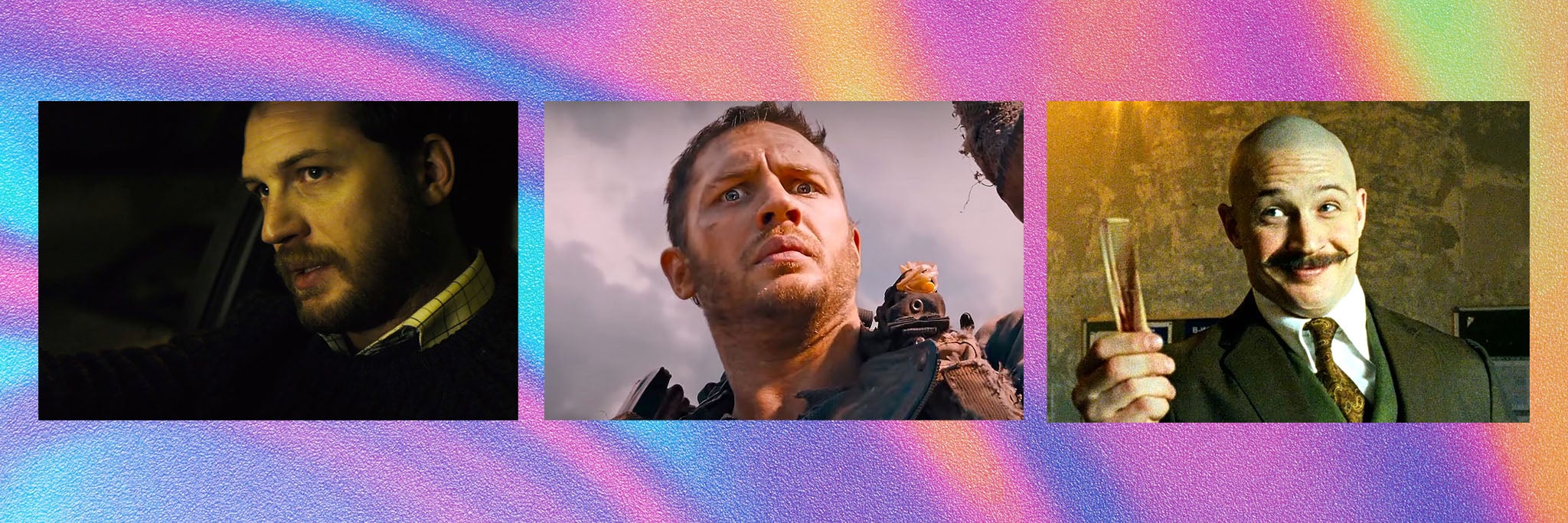
There is no other movie star quite like Tom Hardy, who embraces masculinity just as vehemently as he rejects it. For Christopher Nolan, Hardy has played the noble pilot in Dunkirk (2017); the could-be James Bond with a mischievous smirk in Inception (2010); and, in The Dark Knight Rises (2012), the hulking villain who now, on reflection, sounds uncannily like the viral video of the Australian man’s arrest (“eating a meal… a succulent Chinese meal!”) played through a supermarket tannoy. His accents are pure witchcraft, sourced from unexpected places, and he finds ways to upend and weaponise his physique in ways few others would dare. He’ll turn feral and near-silent for Mad Max: Fury Road (2015), subtle and grounded as a man whose life falls to pieces over the course of a single car journey in Locke (2013), theatrical, violent, and pompous as notorious British prisoner Charles Bronson in Bronson (2008). Hardy can do it all – but he will do it in his own way. Clarisse Loughrey
41. Irrfan Khan
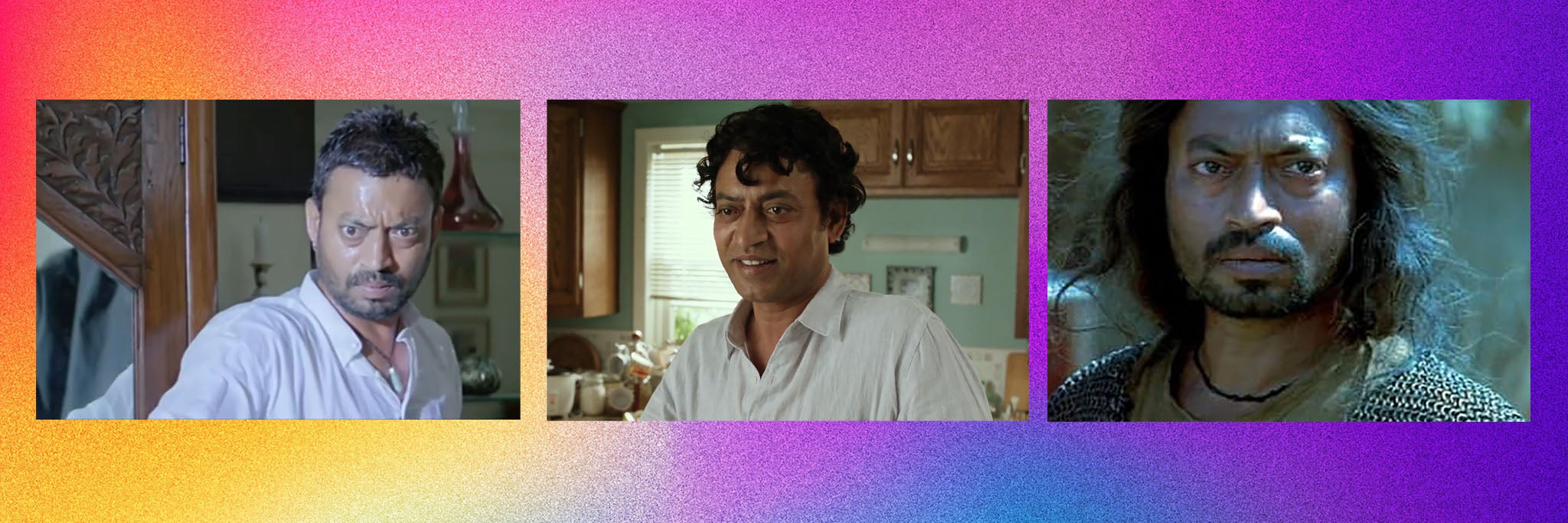
It’s Irrfan Khan’s eyes, hooded and deep brown, that will live eternally. They granted him the ability to weave magic, to recite poetry without moving his lips. After decades in Bollywood – a term he criticised, for tethering the Indian film industry to American ideas – Khan made a major breakthrough with British director Asif Kapadia’s debut The Warrior (2002), as a fighter who tries to make peace with his violent deeds. In this, he was all stoic fortitude; it was intensity he brought, later, to Maqbool (2003), an adaptation of Macbeth set in the Mumbai underworld. And it is tenderness he found as a widower in The Lunchbox (2013). Known to the English-speaking world through roles in Slumdog Millionaire (2008), Jurassic World (2015), and The Darjeeling Limited (2007), Khan died in 2020 at age 53, the world at a loss. CL
40. Javier Bardem
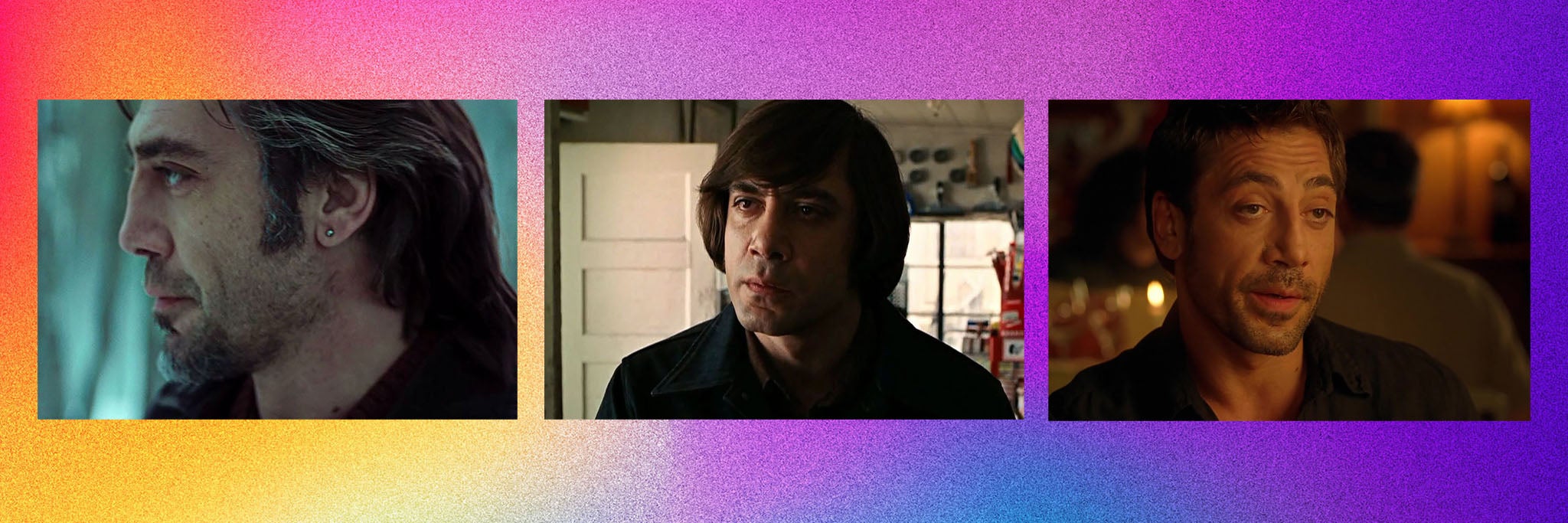
Is there an actor more simmering with machismo and raw power than Javier Bardem? I’m not sure. He was a chilling, milk-chugging psychopath in the Coen brothers’ No Country for Old Men, his deep-seated rage and thirst for slaughter all the more terrifying for his calm, icy exterior. And his mercurial artist in Vicky Cristina Barcelona was seductively, unapologetically primal – more panther than man. Stretching out, like a feline in the warmth of the sun, his claws catching on Penelope Cruz and Rebecca Hall. Even his camp, Nordic-baddie style Bond villain, Raoul Silva, had a sinister potency – all smiles and strange stories about cannibalistic rats. When Bardem’s on the screen, he burns rights through it. EH
39. Viola Davis
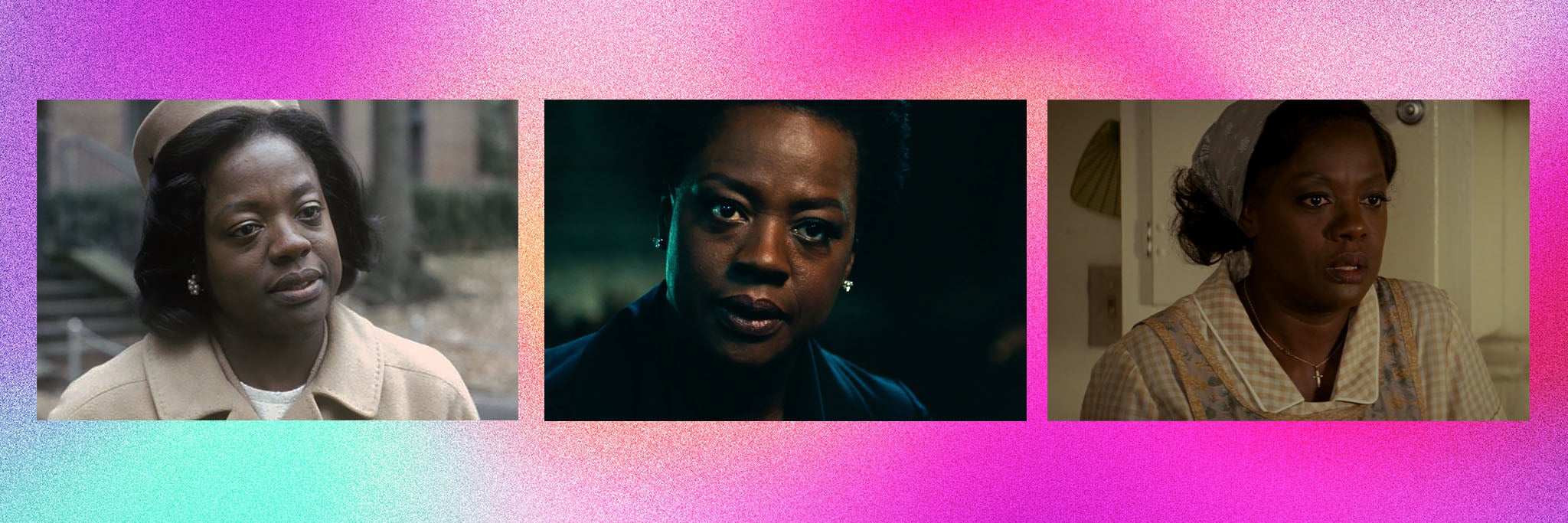
Viola Davis has less than 10 minutes of screentime in Doubt, the 2008 film set in a Catholic school, but her brief turn as the mother of a boy who may or may not have been abused by his teacher is a masterclass in simmering emotion; even her tears seem somehow controlled and understated, falling drop by drop as she goes toe to toe with Meryl Streep. This short but unforgettable role catapulted her already successful career into the big leagues. Davis is an actor of incredible subtlety; watching her face off in 2016’s Fences with Denzel Washington, one of very few performers on her level, was utterly exhilarating, and she brought impressive nuance to her role as the wife of a career criminal in Steve McQueen’s explosive Widows. KR
38. Viggo Mortensen
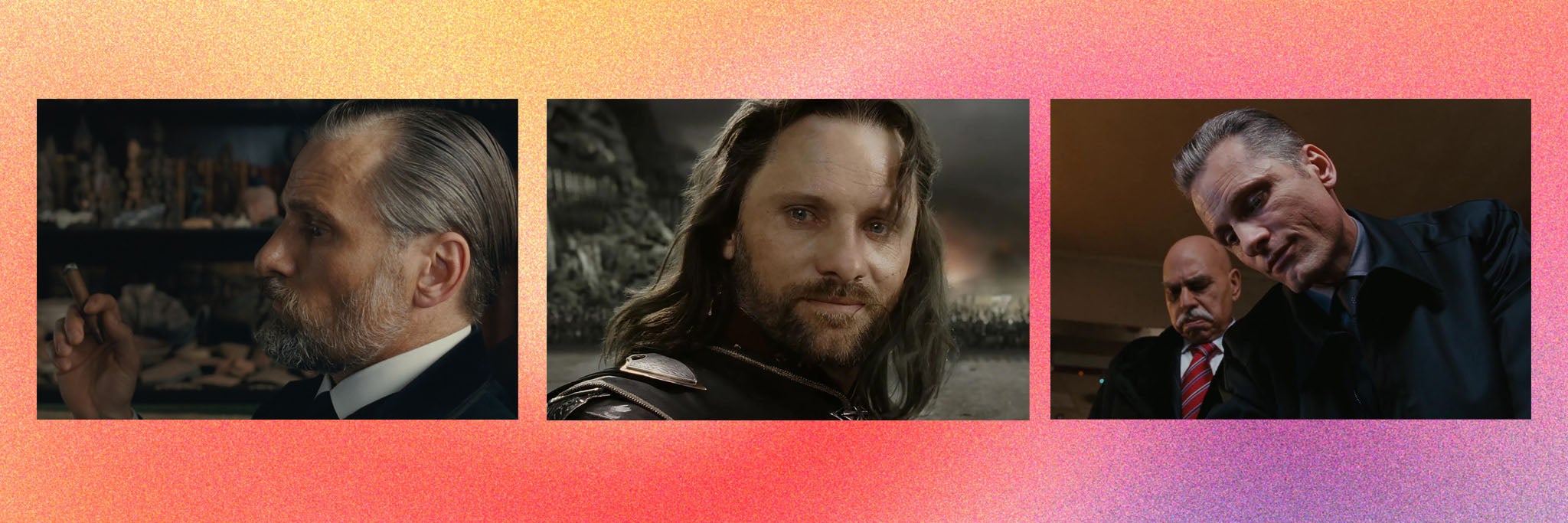
Just how unusual is Viggo Mortensen? When the American actor accepted the role of Aragorn – the roguish and heroic would-be-king in Peter Jackson’s Lord of the Rings trilogy – he seemed set for blockbuster leading man stardom. He nailed the role, of course, imbuing the character with every ounce of grit and grace required. But then he refused the call to action, retreating away from studio money and towards gnarlier indie projects (including several, mostly fantastic, collaborations with David Cronenberg). In an industry of showpeople, Mortensen has the surety and single-mindedness of a bona fide artist. LC
37. Jason Schwartzman
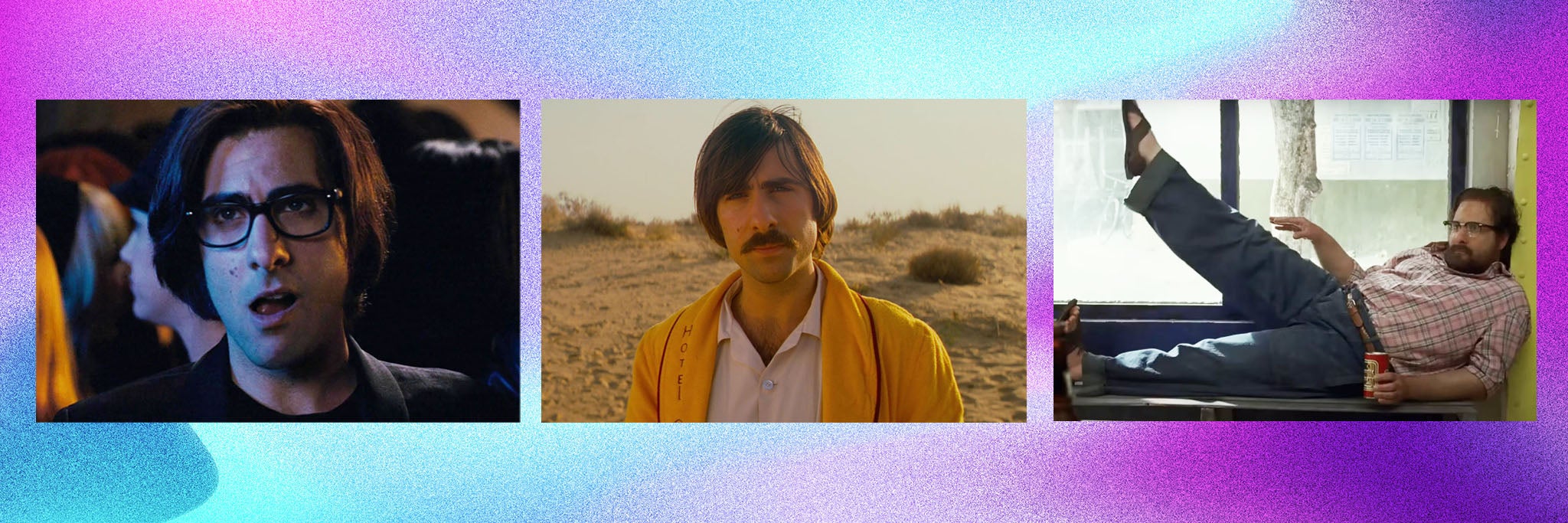
Few actors have mastered the art of understatement quite like Jason Schwartzman. In six post-millennium collaborations with deadpan auteurist Wes Anderson, the American actor has only deepened and evolved as a character actor, apexing with a heartbreaking turn in Asteroid City. But Schwartzman is more than just an able Anderson mannequin. His forays elsewhere – the prickly, neurotic Listen Up Philip; cult gem Marie Antoinette – are roundly great; a wonderfully schlubby turn in the recent Queer (2024) showed he still has more to reveal. LC
36. Adèle Haenel
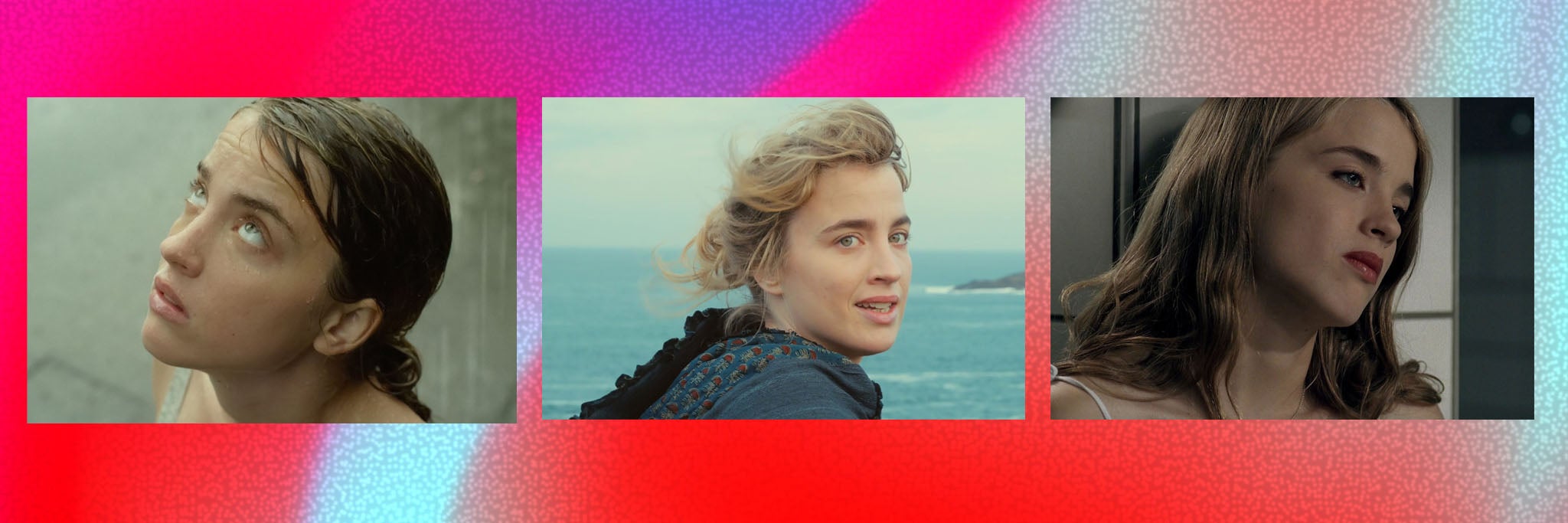
To watch Céline Sciamma’s Portrait of a Lady on Fire (2019) is to fall in love with Adèle Haenel. She may play a woman observed – the aristocratic subject of a painted portrait by artist Marianne (Noémie Merlant) – but when she turns her hardened gaze on us, the corners of her mouth pulled gently down into a scowl, we feel suddenly scrutinised, unpacked. With two César Awards in her native France, Haenel has brought that same disarming steadfastness to her roles in queer dramas Water Lilies (2007), Sciamma’s debut, and BPM (Beats per Minute) (2017). In 2022, she announced that she had stepped away from film, an industry that continues to uphold the “capitalist, patriarchal, racist, sexist world of structural inequality”. We can only hope that, one day, it will finally transform into a place worthy of her talents. CL
35. Robert Pattinson
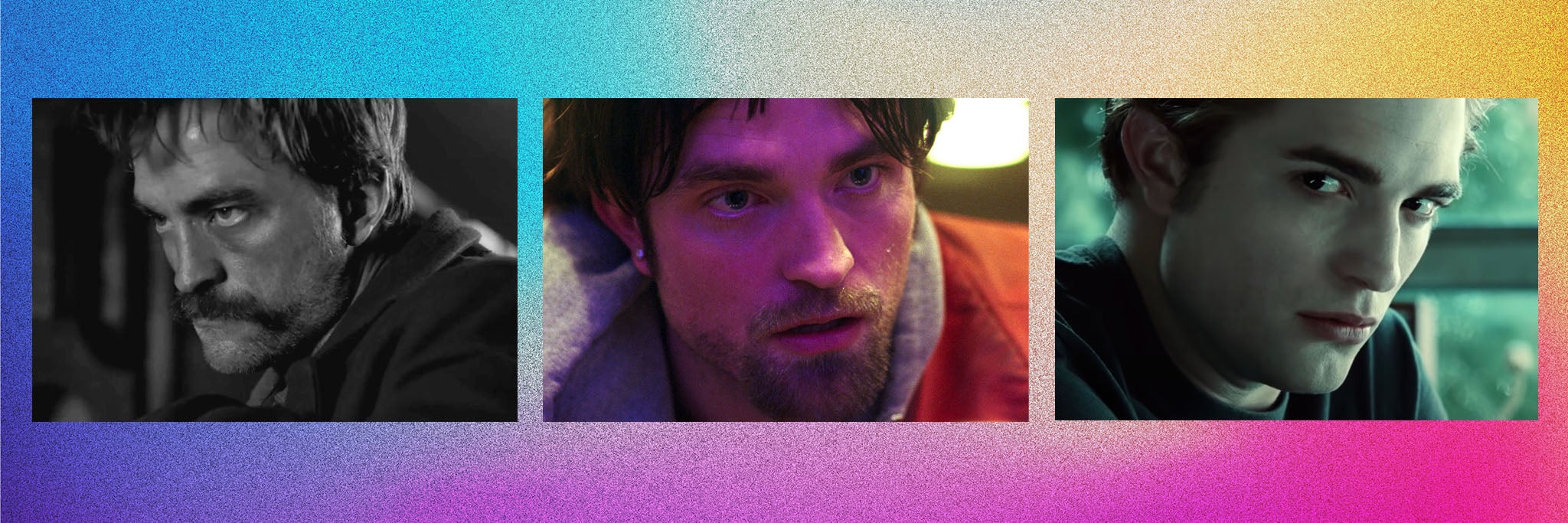
Admittedly, it’s trite to begin a tribute to Robert Pattinson with Twilight, but it feels important to remember that early role when regarding a film like The Lighthouse. In the latter, an arthouse flick of the most artsy kind, Pattinson holds his own against heavyweight weirdo Willem Dafoe – showing off just how far he’s come since making tween girls swoon as a 104-year-old vampire. Sexy, this lighthouse keeper is definitely not. In fact, Pattinson appears to be constantly fleeing the mainstream comforts his conventional good looks might offer, running instead into the arms of directors like Claire Denis, Christopher Nolan, David Cronenberg, and the Safdie brothers, with the same intensity he instils in all his characters. More than anything, Pattinson takes risks – take his deliciously camp French accent in The King, his emo-boy take on The Batman, or Christopher Hitchens-inspired sidekick in Tenet. AN
34. Michael Stuhlbarg
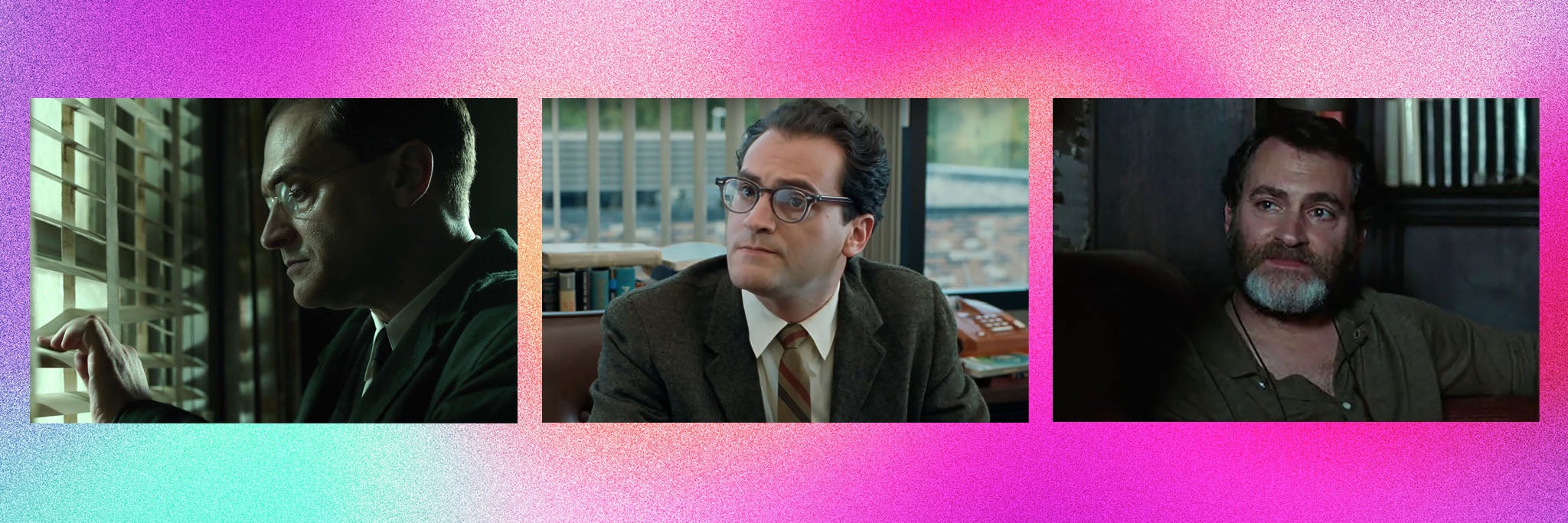
In just a few minutes, towards the end of Call Me by Your Name, Michael Stuhlbarg, one of America’s finest supporting presences, destroyed his audience. “Right now, there’s sorrow, pain,” the father tells his son, of first love. “Don’t kill it and with it the joy you’ve felt.” Exquisite writing, sure, but it was Stuhlbarg’s trademark combination of quasi-academic poker face and latent sensitivity that makes it work. His finest performance, though, is another character in emotional turmoil: hapless university lecturer Larry Gopnik in the Coen brothers’ A Serious Man. Released in 2009, it precipitated a series of castings – Lincoln, Steve Jobs, The Post, The Shape of Water – that have made Stuhlbarg one of Hollywood’s most reliable performers. NH
33. Mark Ruffalo
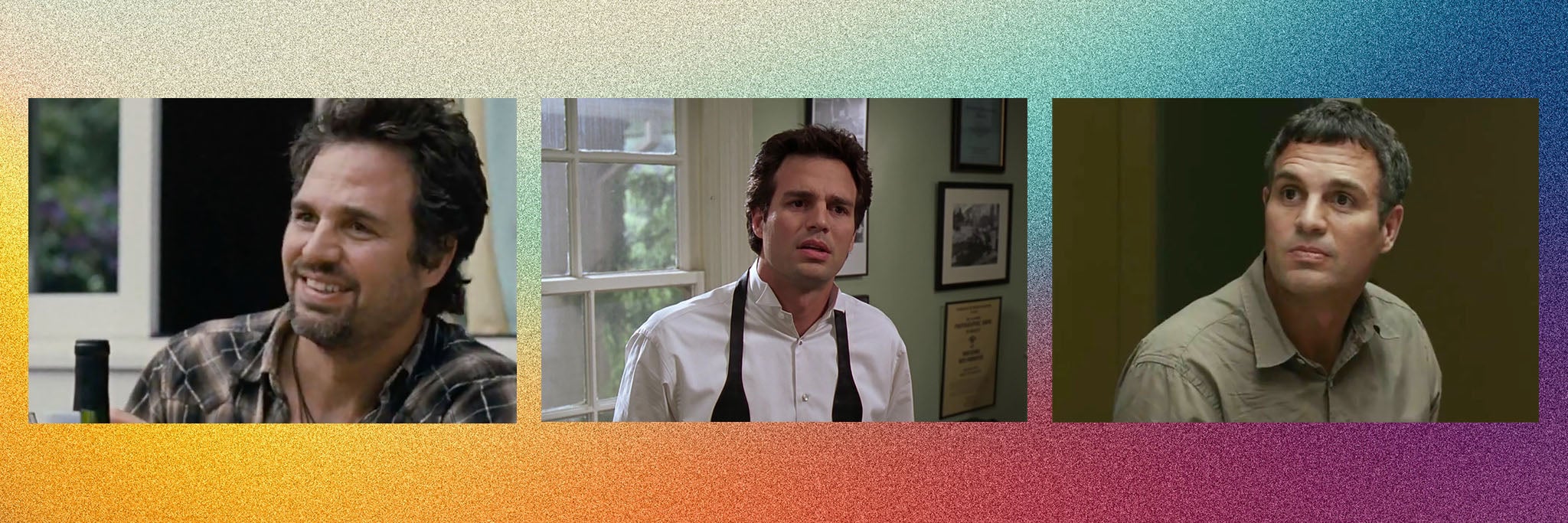
There’s something peculiarly offbeat about Ruffalo’s sensibility, a kind of volatile softness that makes him such a curious fit for roles such as In the Cut’s sexed-up police detective, or the devil-may-care sperm donor in The Kids Are All Right. But Ruffalo was excellent in them, as he seemingly always is – Zodiac, Shutter Island, Foxcatcher, and Spotlight all drew deft, affecting work from him; Poor Things saw him thrive in a comic turn as a blustering, cuckolded fop. Even his multi-film run as Marvel’s Incredible Hulk contains some interesting touches – particularly in the first two Avengers films. LC
32. Frances McDormand
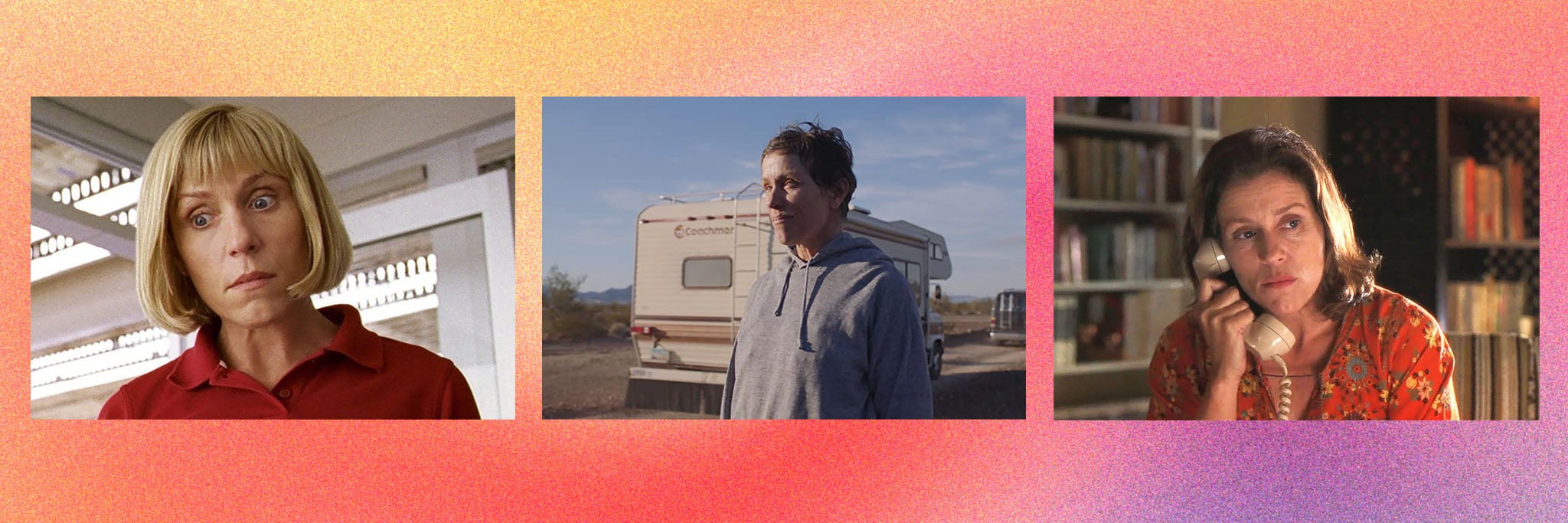
Frances McDormand may forever be associated with the extremely pregnant, wonderfully uncool Minnesotan police chief of 1996’s Fargo, but the 21st century has seen her age into a giant of the industry. McDormand’s startling ability to telegraph several emotions and motivations at once is used to brilliant effect in her more recent roles, whether playing an avenging mother (Three Billboards Outside Ebbing, Missouri) or an overbearing one (Almost Famous). Her naturalism and empathy found yet another home in Chloe Zhao’s Nomadland – an apotheosis for one of today’s best living actors. After all, three Oscars don’t lie. AN
31. Ryan Gosling
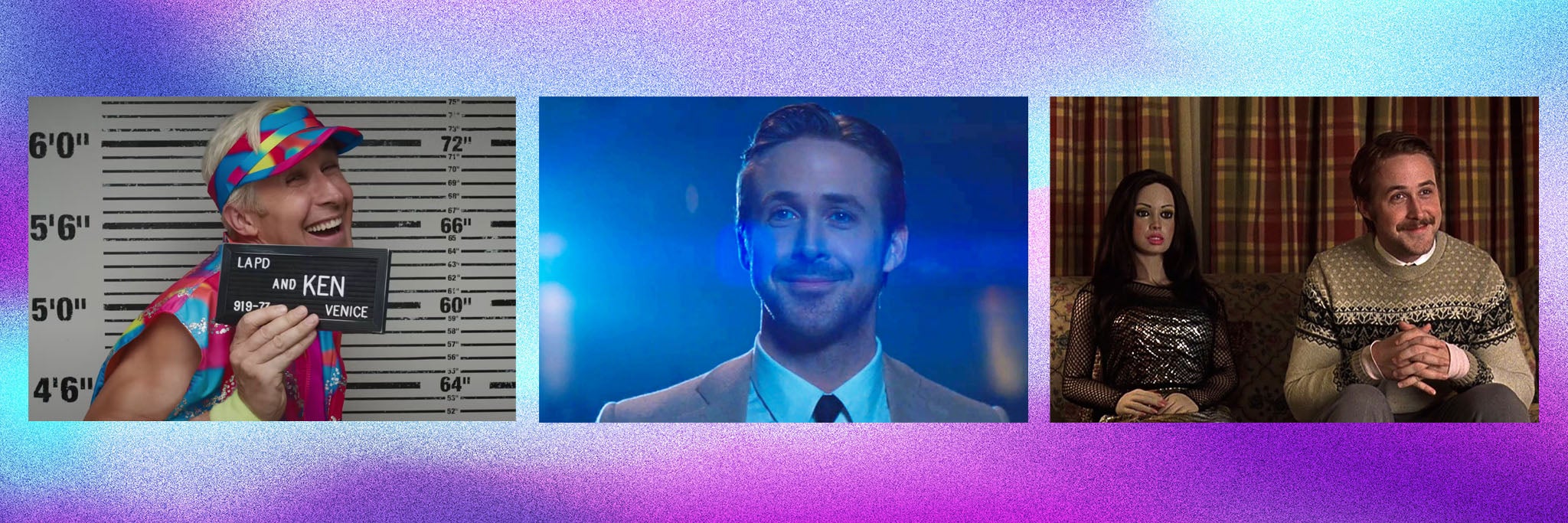
This is the actor who, in Barbie, managed to turn a plastic doll with a smoothed-over crotch into a genuinely revealing portrait of a misguided modern man – and the funniest person in that film to boot. But Ryan Gosling’s not just Ken. That performance was the latest of many – from The Nice Guys to Lars and the Real Girl to Crazy, Stupid, Love – in which Gosling showed his quirkiness and willingness to look ridiculous. But he’s also one of the most resonant dramatic movie stars of his generation – just look at his brooding stoic in Drive, or the tragic lovers he’s played in his two collaborations with Derek Cianfrance (Blue Valentine and The Place Beyond the Pines). This man will pierce your heart. And do it all with a lopsided smile. EH
30. Rachel McAdams
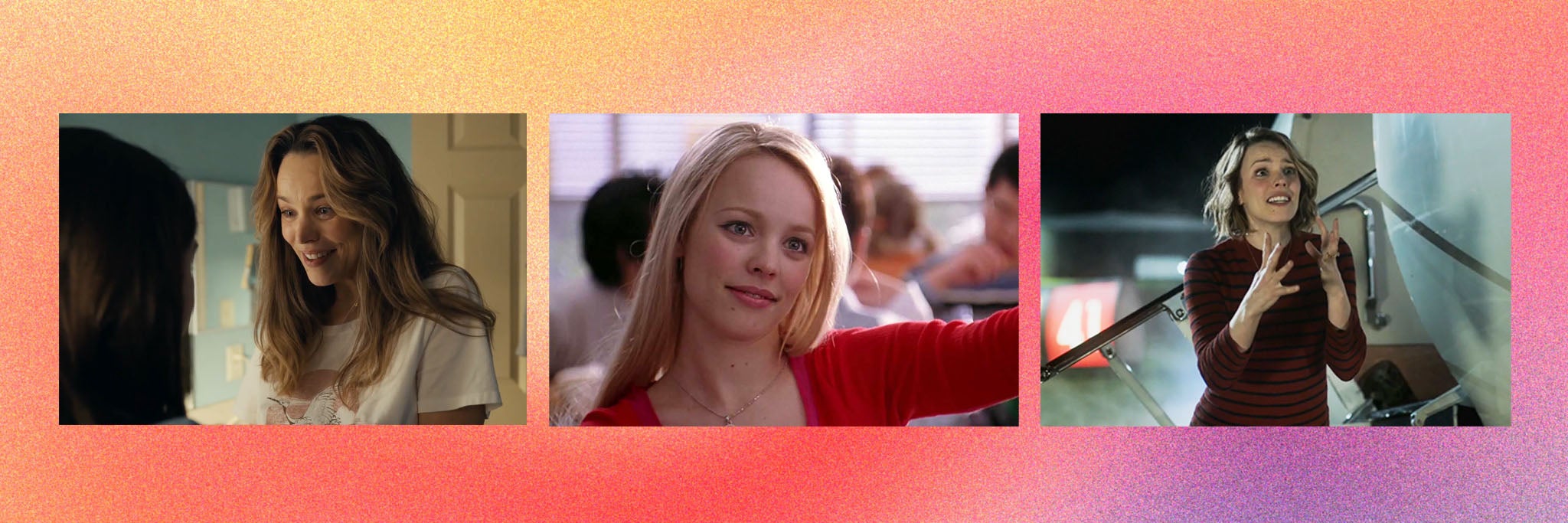
The 21st century’s reluctant movie star, Rachel McAdams does some of the funniest and most memorable acting you’ve ever seen, then burrows herself away for years in parts unknown. Or, y’know, somewhere in her native Canada. Unusually for somebody so publicly offline, it’s the internet that seems to keep her work alive: every one of her borderline sociopathic line deliveries in Mean Girls now exists in meme form, likewise her deadpan exclaim of “Oh no, he died” in the cult comedy Game Night. Does her queer romantic drama Disobedience even exist outside of that gif of Rachel Weisz spitting in her mouth? More than anything, though, McAdams is just lovely to watch on screen: warm and empathetic in the likes of The Notebook and Are You There God? It’s Me, Margaret; steely and self-assured in Spotlight and Red Eye. AW
29. Mahershala Ali
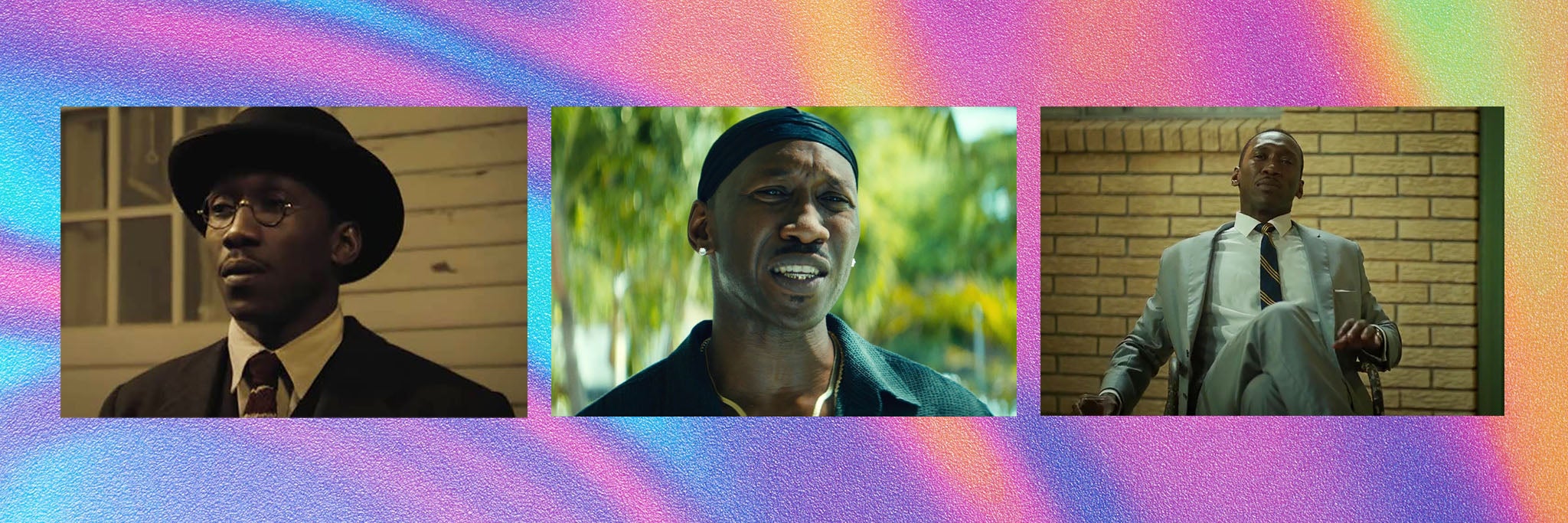
Mahershala Ali possesses the quiet command of Old Hollywood stardom, a sense that no word is wasted, no gesture made without careful intent. His reserve can transform into calculated hostility when he wills it, such as his villainous turn as Cottonmouth in Marvel’s Luke Cage, or into something more graceful, more contemplative, as so beautifully demonstrated in his Oscar-winning performances in Moonlight (2016) and Green Book (2017). These roles catapulted him from a steady, but unassuming place in the industry, into its very heart – as he became the first Muslim actor to win an Oscar and the only Black actor since Denzel Washington to win two. In Moonlight, Ali haunts the screen despite his relatively contracted screen time as Juan, a local drug dealer who takes young Chiron (Alex R Hibbert) under his wing and shows him the gentle nature of the world. CL
28. Saoirse Ronan
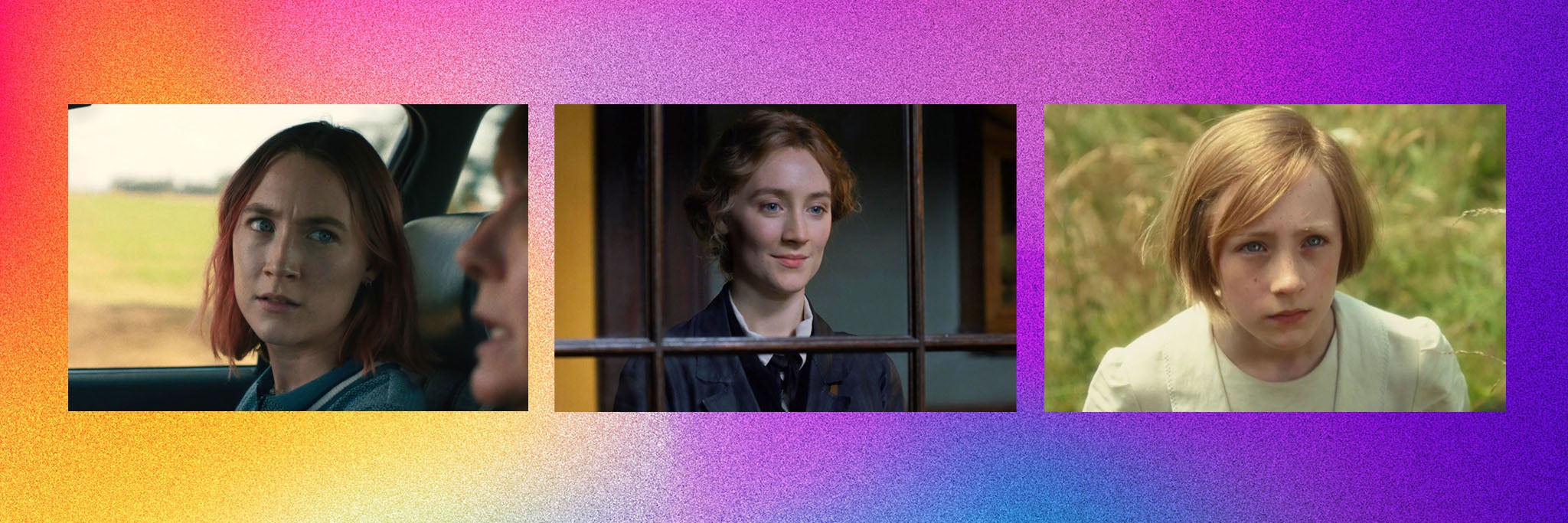
She was just 12 in Atonement, but the pre-teen Saoirse Ronan already had the striking intensity that she’d bring to future roles; her turn as Briony, alternately naive and precocious, sets up the film’s moral thorniness. Since then, Ronan has established herself as an industry favourite who values interesting creative choices over blockbuster fame. She seems to have found her dream collaborator in Greta Gerwig, who has directed her in two of her best performances: as the “titular role” in Gerwig’s coming-of-age movie Lady Bird and as Jo March in Little Women, a casting decision that managed to please even the most devoted fans of Louisa May Alcott’s classic. “I hope we get to be old ladies together making movies about old ladies,” Gerwig has said of the star. KR
27. Paul Giamatti
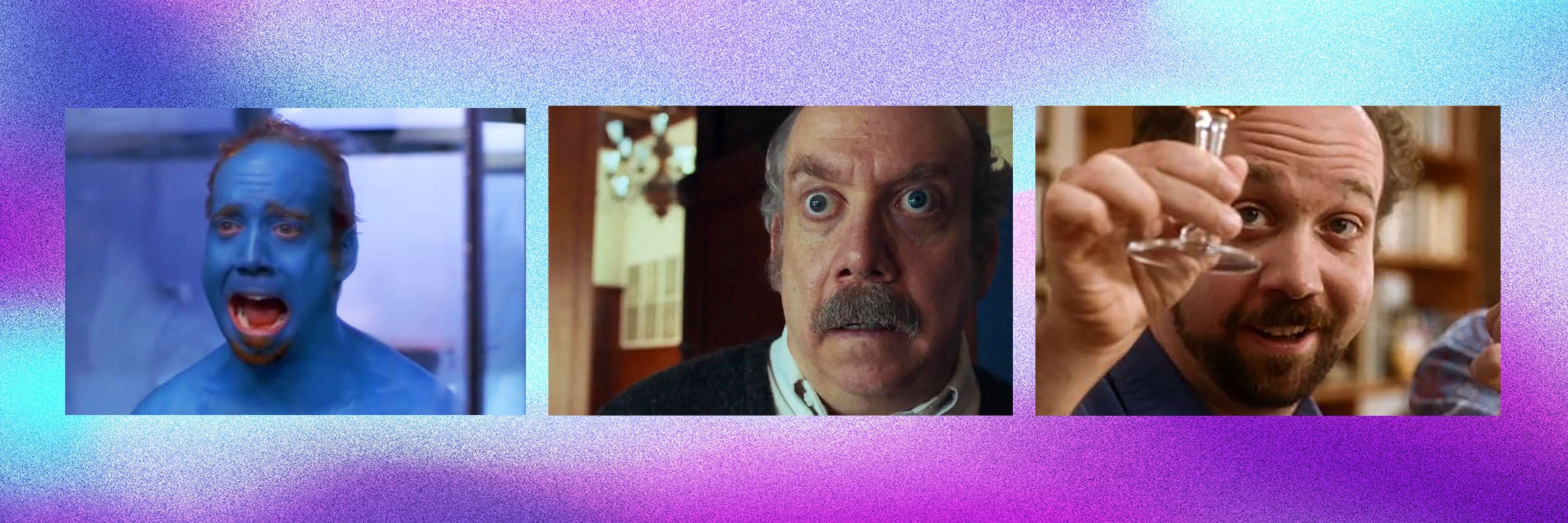
As Paul Hunham, the curmudgeonly teacher-turned-caretaker in Alexander Payne’s The Holdovers, Giamatti reminded audiences that he is a major screen talent. Too often pigeon-holed as a ‘character actor’ (a Hollywood euphemism for people who don’t look like your average pin-ups), Giamatti has stretched his range across blockbusters (Planet of the Apes, The Amazing Spider-man 2, The Hangover Part II), awards fare (12 Years a Slave, Saving Mr Banks, The Ides of March) and big, glossy TV shows. But it’s tender indies such as Win Win, Private Life and Barney’s Version that have best displayed Giamatti’s everyman talent, not to mention his canonical role as wine snob Miles in 2004’s Sideways, a performance so powerful it crashed sales of Californian merlot. NH
26. Joaquin Phoenix
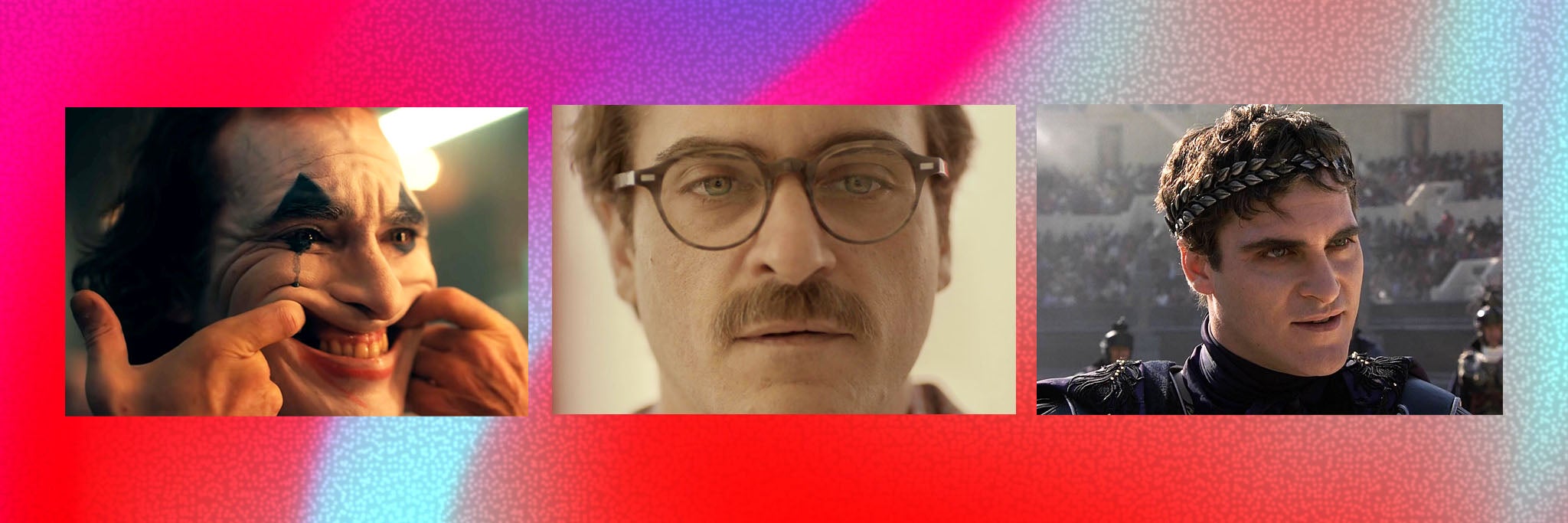
Being the younger brother of a major heartthrob, and nascent serious movie star, can’t have been easy for Joaquin Phoenix. But, over the years, he has stepped out of the shadow of his brother’s legacy – and tragedy – with a series of roles that show how easily he manoeuvres between threat and vulnerability, an internal conflict he’s been mastering since 2000’s Gladiator. Chief in some minds will be his Oscar-winning turn in Joker, but his performances in films such as Two Lovers, The Master, Her, Inherent Vice and C’mon C’mon are far more interesting. In fact, Phoenix’s filmography is so riddled with deep, complex performances, that it’s hard to pick a favourite: not only does he almost always deliver a multilayered performance, he is a judicious picker of enticing projects. NH
25. Carey Mulligan
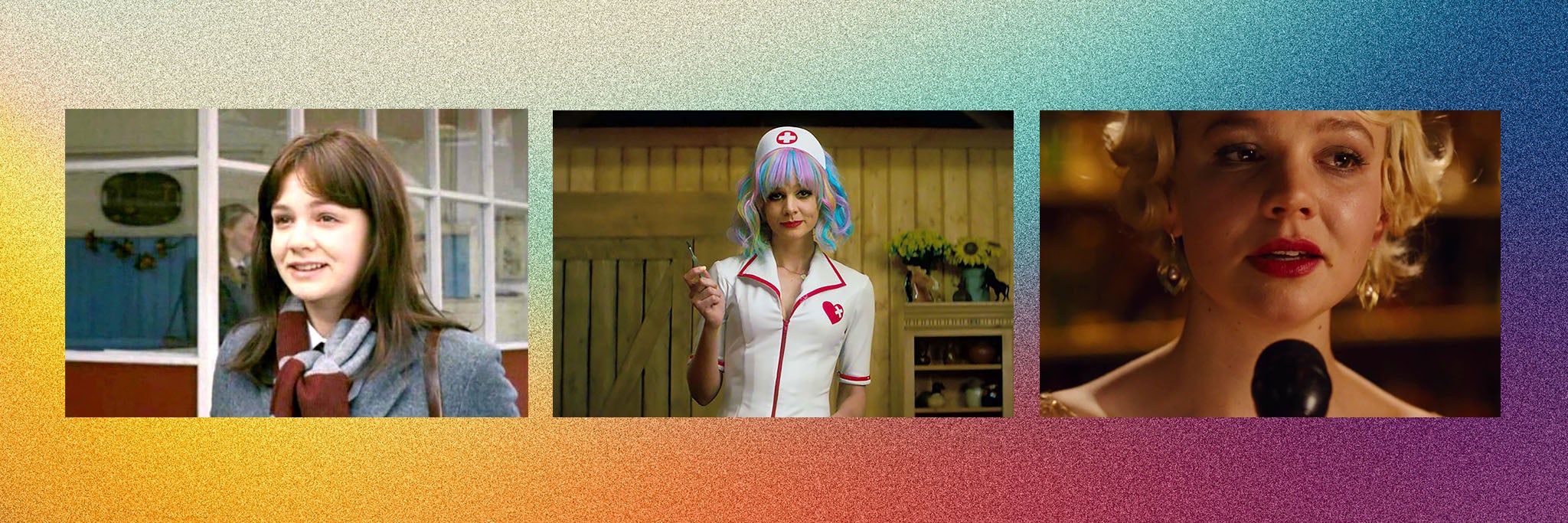
Mulligan was a fresh-faced 23-year-old when she received her first Oscar nod in 2010, for a performance in An Education that nimbly balanced the naivety, earnestness and put-on sophistication of a 16-year-old girl on the brink of adulthood. Then came roles that plunged into the darkness – a ground-down wife in Drive, a suicidal singer in Shame, a raging folk artist in Inside Llewyn Davis. Her second nomination was in 2021 for Promising Young Woman, a film that arrived with the velocity and colour palette of an explosion at a bubble gum factory. As a woman forever changed after her friend was raped, Mulligan was vengeance itself – scheming, merciless, insatiable, and dripping with pure pain. Her third came in 2024 for her beautifully brittle Felicia Montealegre Cohn in Maestro, the actor and activist wife of composer Leonard Bernstein. So many roles, and to all of them she brings such aching humanity. EH
24. Jesse Plemons
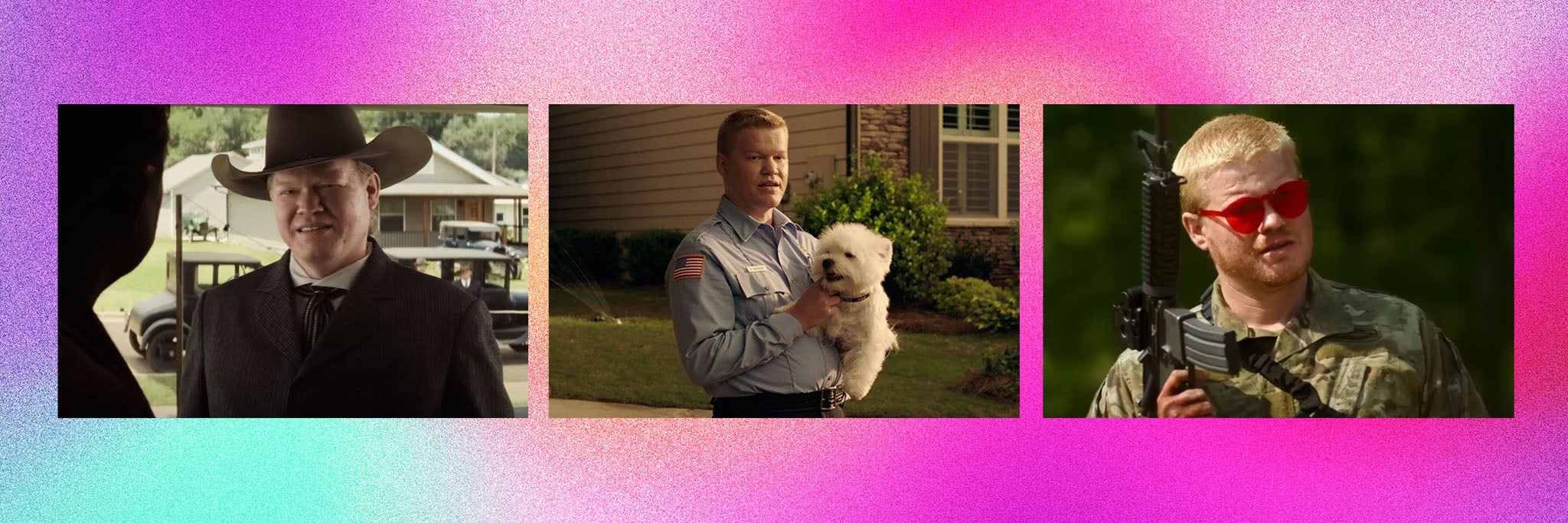
Who would’ve thought the bowl-cut kid from Like Mike would grow up to be one of the 21st century’s finest actors? From those humble beginnings, Jesse Plemons continues to forge one of the most interesting paths for a character actor to date – traversing prime-time TV (Friday Night Lights; Breaking Bad), spiky arthouse films (Kinds of Kindness; I’m Thinking of Ending Things), Oscar winners (Killers of the Flower Moon; Power of the Dog), and silly comedies (Game Night). The one consistent? Plemons making off with scenes, by virtue of his sheer naturalism. He is the sort of actor who feels as though he’s just stumbled off the street and onto the screen – lending every role (even the bonkers Kinds of Kindness) a rare, coveted believability. AN
23. Penélope Cruz
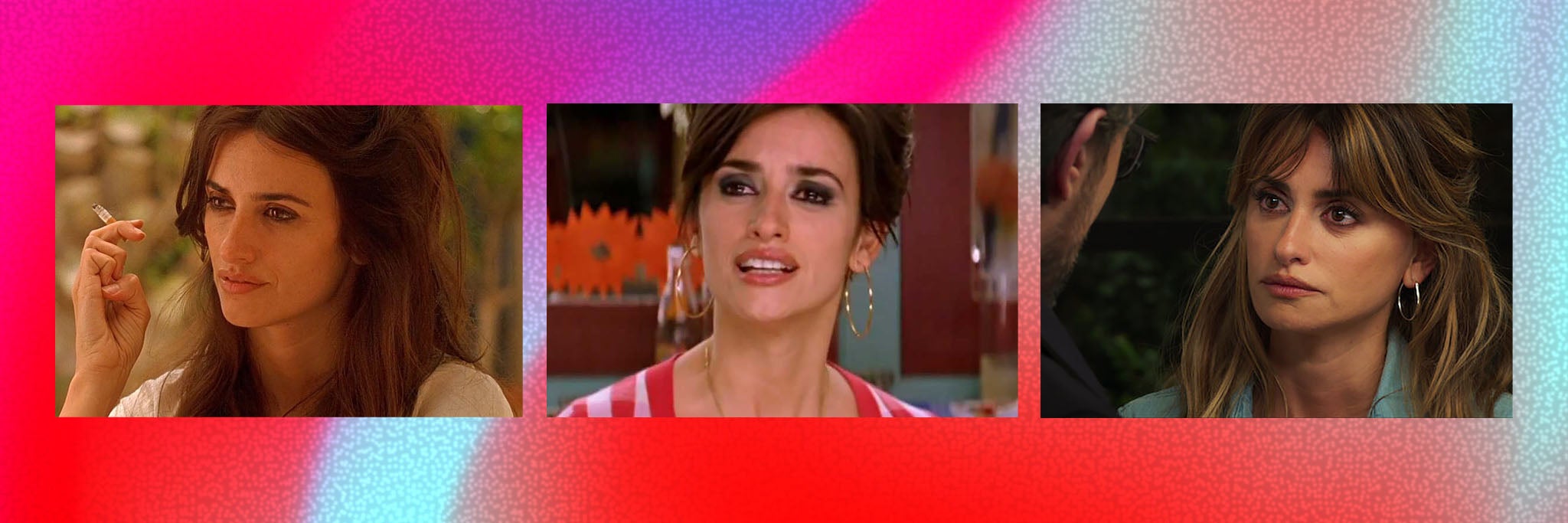
Cruz walked into our lives in a red dress carrying a suitcase down a dusty road in Jamón Jamón in 1992. The intensity she brought as an 18-year-old to her debut film role was just a foretaste of what was to come in a scintillating career now in its fourth decade. She won an Oscar and a Bafta for her 2008 role in Woody Allen’s Vicky Cristina Barcelona, yet Cruz has arguably done her best work in the films of Pedro Almodóvar, for whom she has been a fixture in classics such as Volver (2006), Broken Embraces (2009), and Parallel Mothers (2021). The director finds the range and emotional depth in the performances of this daughter of a hairdresser and a car mechanic from the Madrid suburbs, who made the leap from European arthouse to Hollywood blockbuster with ease opposite Tom Cruise in Vanilla Sky (2001) and Adam Driver in Ferrari (2023). Cruz takes complex, multifaceted characters and sets them ablaze with inner fire. CH
22. Adam Driver
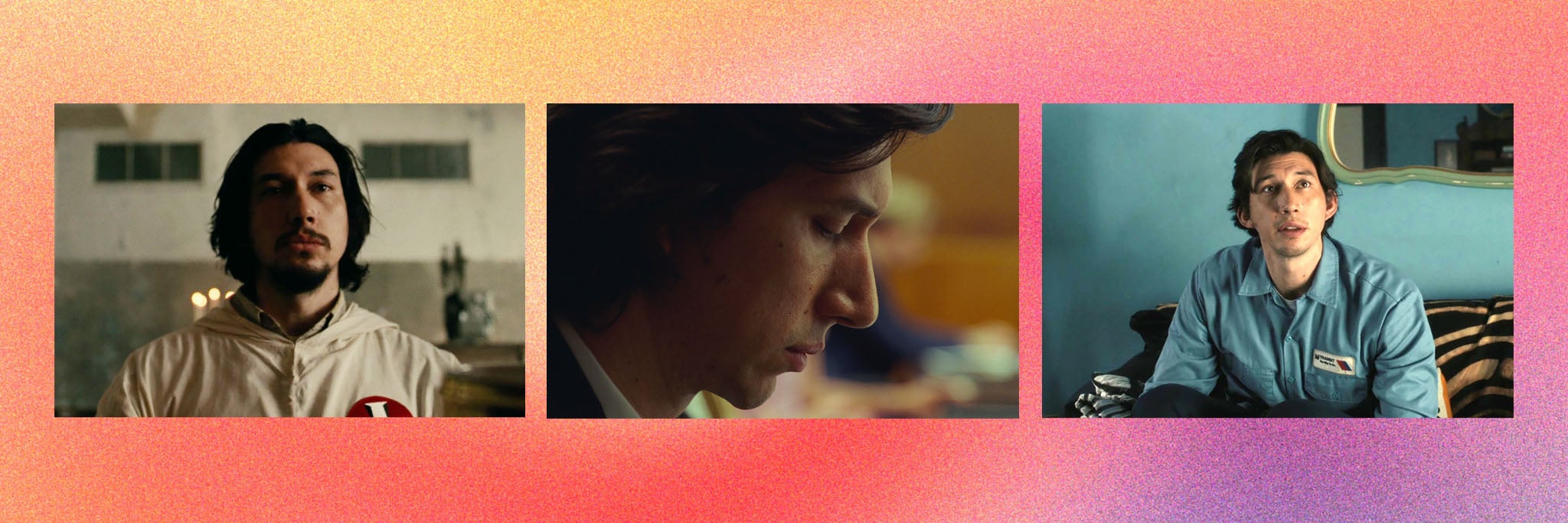
We have much to thank Lena Dunhan’s Girls for, not least introducing the world to Adam Driver. As the show’s boorish artist boyfriend, he proved himself a fount of untapped talent – every scene a vehicle for his oddball magnetism. On the big screen, he’s all coiled emotion, a six-foot-two loaded spring ready to go off – in which direction is anybody’s guess. Driver is an actor of contradictions. He is kind and cruel, charming and disgusting, loveable and loathsome. He’s also strange, lending each role a certain can’t-look-away eccentricism, no matter if it’s arthouse like Annette or as mainstream as Star Wars. In the words of Lena Dunham: “He’s a freakin’ weirdo.” AN
21. Tony Leung
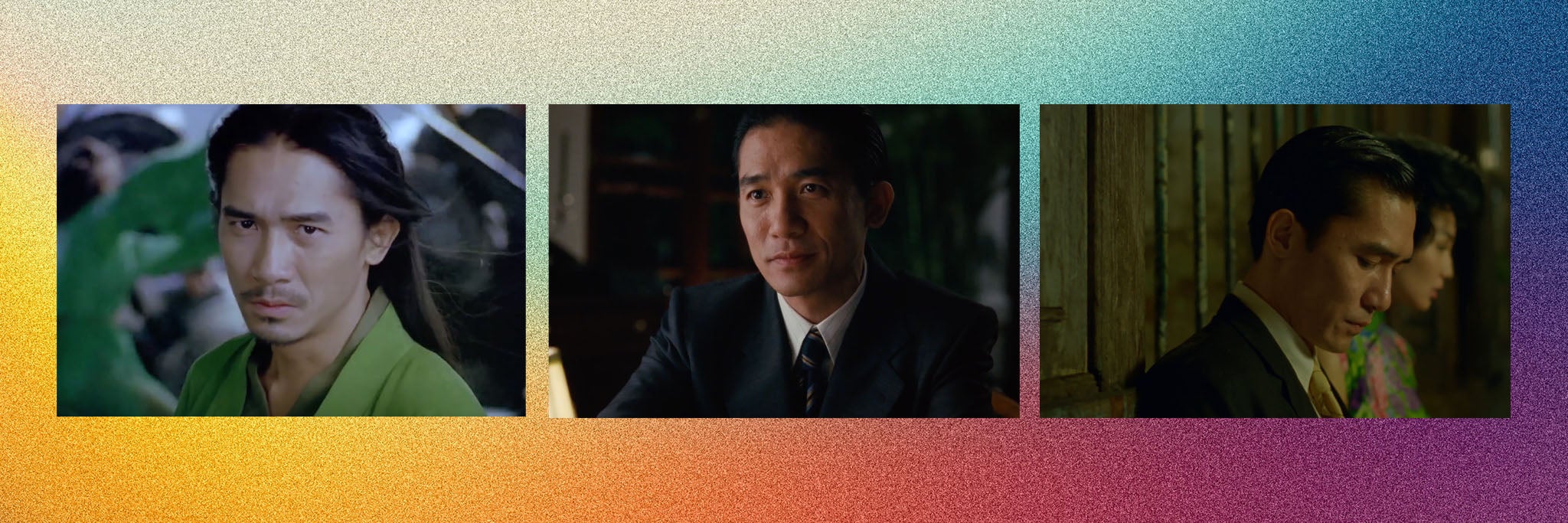
The sensual king of Hong Kong film, Leung has a kind of magnetism that could start international conflicts. The New York Times once called it a “ravishing sadness”, all parting glances and inscrutable yearning – captured best by Wong Kar-wai in his majestic romance In the Mood for Love. Then Leung switches it up: an assassin in Zhang Yimou’s Hero, a battered undercover cop in Infernal Affairs, an inscrutable (if impossibly handsome, duh) traitor in Ang Lee’s Lust, Caution. Few stars burn with such naked, intoxicating charisma. And throw him into a rare English language film, such as Marvel’s Shang-Chi, and the balance is almost hilariously off: he is a hydrogen bomb, everybody else a coughing baby. AW
20. Tilda Swinton
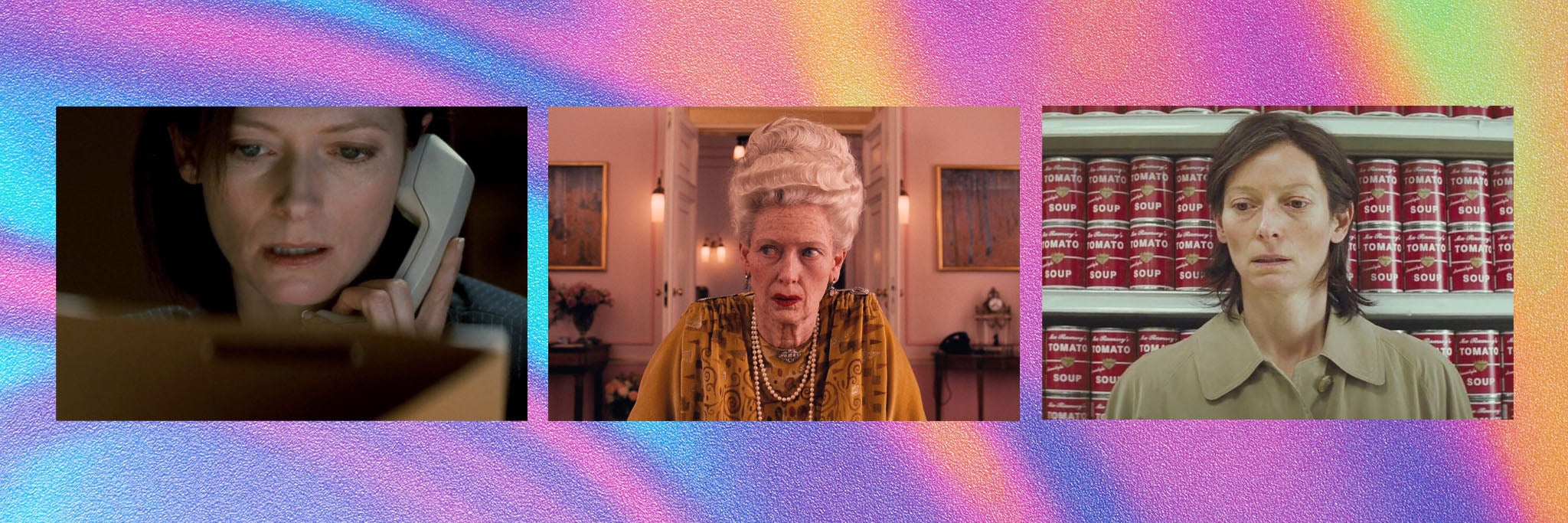
Swinton is one of cinema’s great chameleons, as believable when playing a mother with a slowly dawning horror about her impossible-to-reach child in We Need to Talk About Kevin (2011) as she is the besotted elderly dowager Madame D in The Grand Budapest Hotel (2014). It might be easy perhaps to associate her regal poise with being the daughter of a Scottish noble, yet she sometimes conveys almost unfathomable depths beneath the porcelain-cool exterior that she presents to the cameras. There’s heat and emotion there, too, as in the portrait of an attorney who sanctions a cover-up killing in Michael Clayton (2007) – for which she won an Oscar, opposite George Clooney. Swinton is a risk-taking actor who almost never disappoints. CH
19. Kirsten Dunst
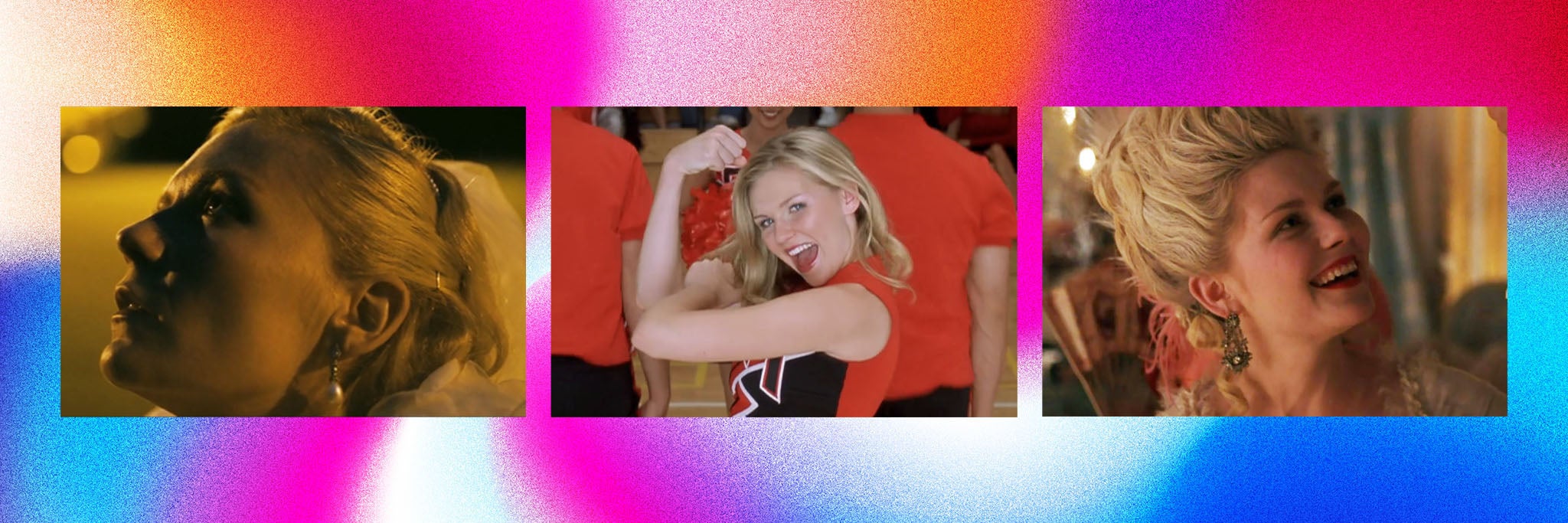
A rare fusion of boundless ability and absolutely impeccable taste, Kirsten Dunst could be the owner of the most impressive filmography on this list if we were ranking on sheer diversity. Look at the material: the teen boppery of Bring It On and Get Over It; the comic book thrill of Spider-Man; the modern classic that is Eternal Sunshine of the Spotless Mind. Dunst is very good at a kind of piercing, complex sunniness, the kind that masks disappointment, self-loathing or – as in dark comedies like Bachelorette or Sofia Coppola’s haunted soufflé of a movie, Marie Antoinette – rampant insecurity. And she’s absolutely sensational as women adrift in despair, an ache that fuels her characters in Coppola’s The Beguiled and The Virgin Suicides, Jane Campion’s The Power of the Dog and Lars von Trier’s breathtaking Melancholia. Kirsten Dunst, the thinking millennial’s favourite movie star. Long may she reign. AW
18. Michelle Williams
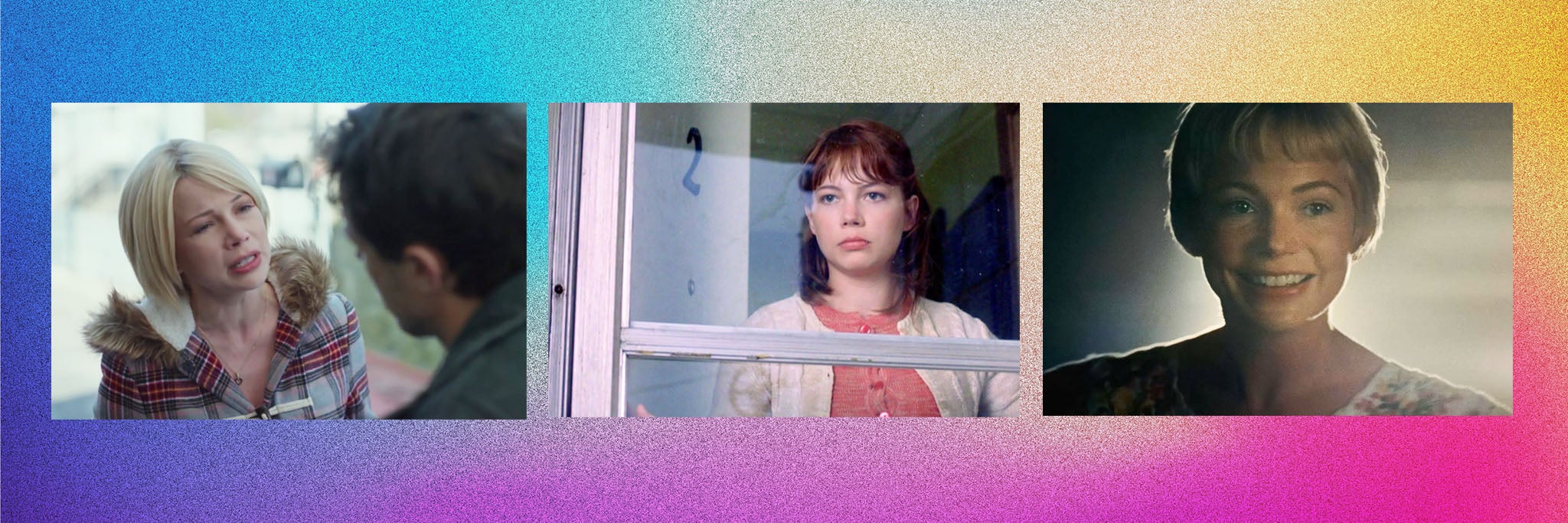
From Dawson’s Creek smartarse to inveterate Academy Award nominee, Michelle Williams’s career has been one of slow but steady recognition. It was her performance as an overlooked, betrayed housewife in 2005’s Brokeback Mountain, her first Oscar-nominated role, that propelled her out of the memory of Nineties teens and into the acting mainstream. Since then, it is performances in films such as Blue Valentine, Manchester by the Sea and The Fabelmans that have exhibited her power for quiet heartbreak, whilst other roles, such as Emily Tetherow in Meek’s Cutoff and Marilyn Monroe in My Week With Marilyn, have demonstrated her enormous range. NH
17. Leonardo DiCaprio
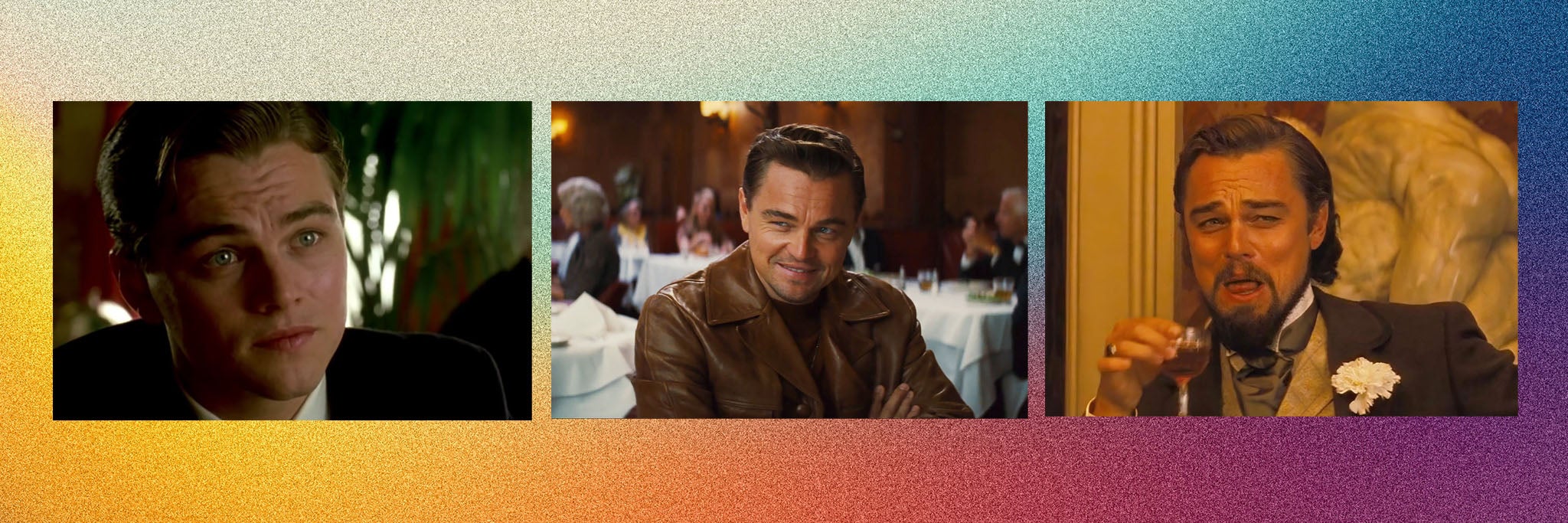
Sometimes, the desperate desire to win an Academy Award – or even, the perception that such a desire exists – can derail an actor’s promising career, tipping them towards safe, pandering sludge in an effort to please voters. DiCaprio, one of the biggest stars on the planet, was seen to have spent much of the 21st century pining for the Academy’s recognition. Though it finally arrived in 2016 (for the punishing wilderness western The Revenant), this pursuit of Oscar glory only ever pushed DiCaprio into bolder and more daring territory. He is outstanding in his six collaborations with Martin Scorsese (particularly Wolf of Wall Street) but his best work may have come with Quentin Tarantino – as explosive irredeemable slave-owner Calvin Candie in Django Unchained, and washed-up actor Rick Daltonin Once Upon a Time… in Hollywood. The fresh-faced kid from Titanic is long gone – the man who’s replaced him is far more interesting. LC
16. Kristen Stewart
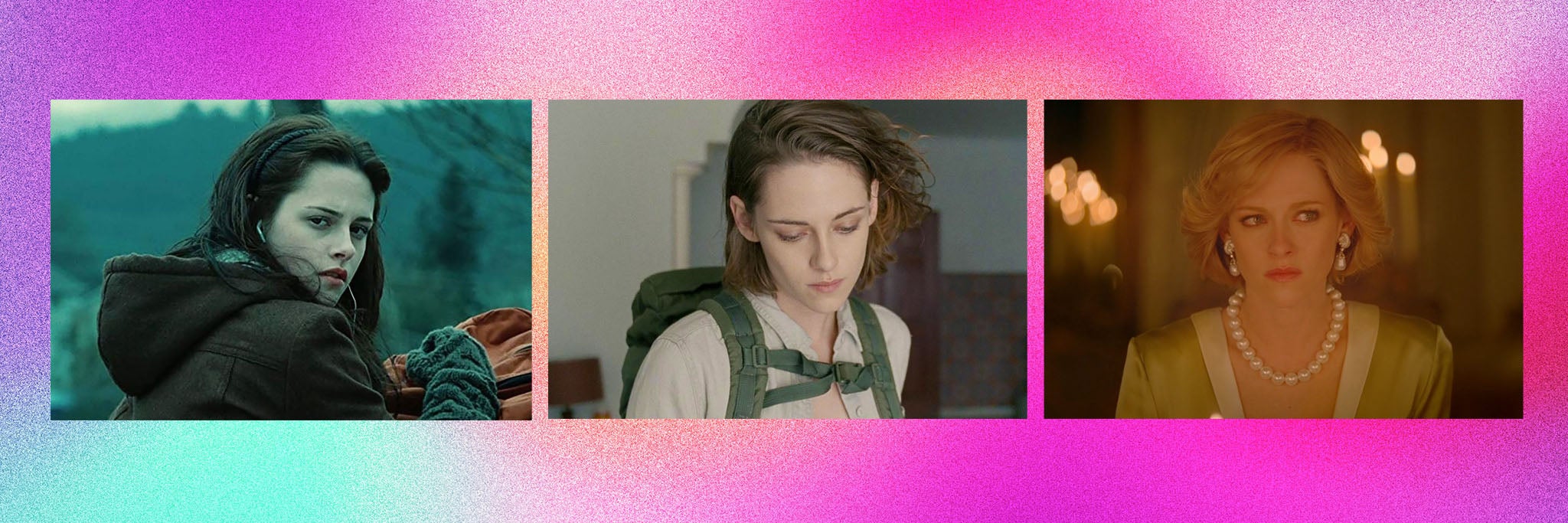
A movie star made in an instant, thanks to the Twilight series, Kristen Stewart has for a long time been treated as caricature in the popular imagination. Lip bite. Hair twirl. Stammer. But her genius as an actor is that, while others clamoured for her to fade away, tics, mannerisms and all, she saw them for what they truly were – a marker of humanity at its most honest. Even when in the act of imitation, carefully replicating the bashful head-tilt and murmured entreaties of Princess Diana in Pablo Larraín’s Spencer (2021), Stewart finds deep and restless parts of herself in these characters. Nothing is suppressed. She is available, entirely, to the camera, inviting in new conditions and perspectives. Then, she allows those emotions to explode outwards like fireworks, in Olivier Assayas’s Personal Shopper (2016), Kelly Reichardt’s Certain Women (2016), David Cronenberg’s Crimes of the Future (2022), or Rose Glass’s Love Lies Bleeding (2024). To Stewart, there is only truth in cinema. CL
15. Jennifer Lawrence
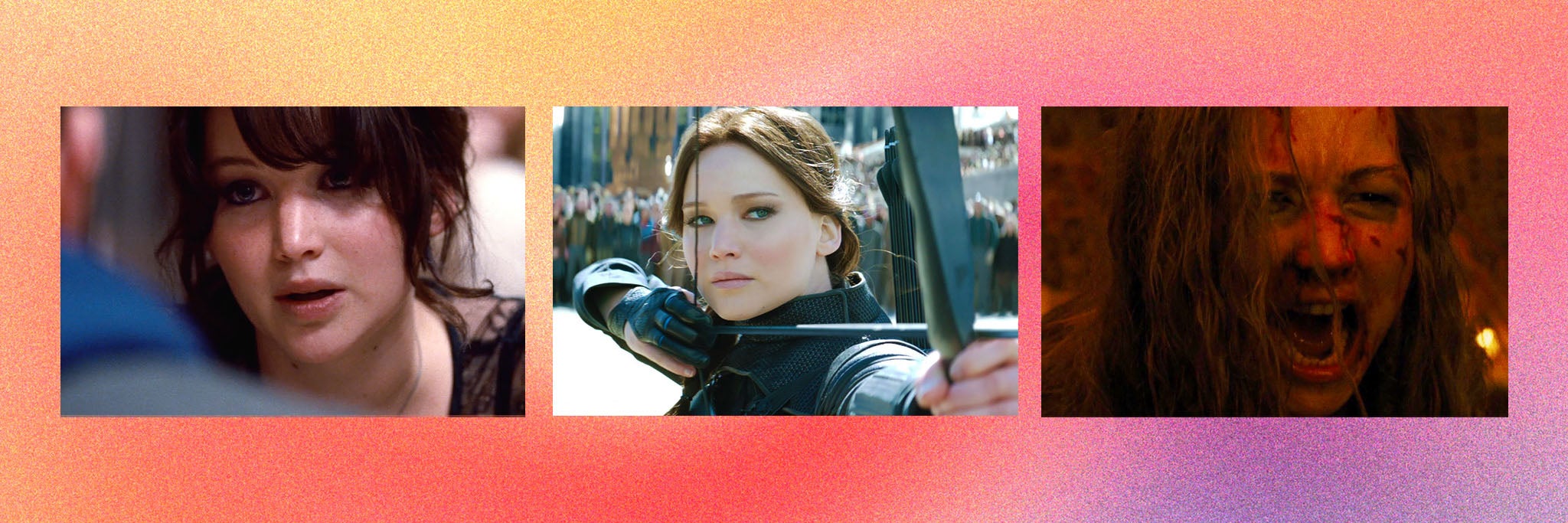
The speed with which Jennifer Lawrence ascended in the 2010s was all the more impressive considering the impoverished outsiders she’s so good at playing: the reluctant warrior of The Hunger Games, the backwoods quasi-orphan of Winter’s Bone, the battle-wary drifter of Causeway. There is a grit to Lawrence’s greatest characters, who possess a strength that’s taken root only because their circumstances insist upon it. Even while becoming one of the most famous women on the planet, Lawrence’s creative choices – the Oscar-winning mania of Silver Linings Playbook; the hard-to-watch chaos of Darren Aronofsky’s Mother! – have rarely felt glamorous. Her one proper comedy vehicle, 2023’s No Hard Feelings, similarly brims with subversion: there’s no nudity in her sexy skinny dipping scene, but an eye-popping full-frontal when she’s violently beating up a pack of teenagers for stealing her clothes off the beach right after. AW
14. Christian Bale
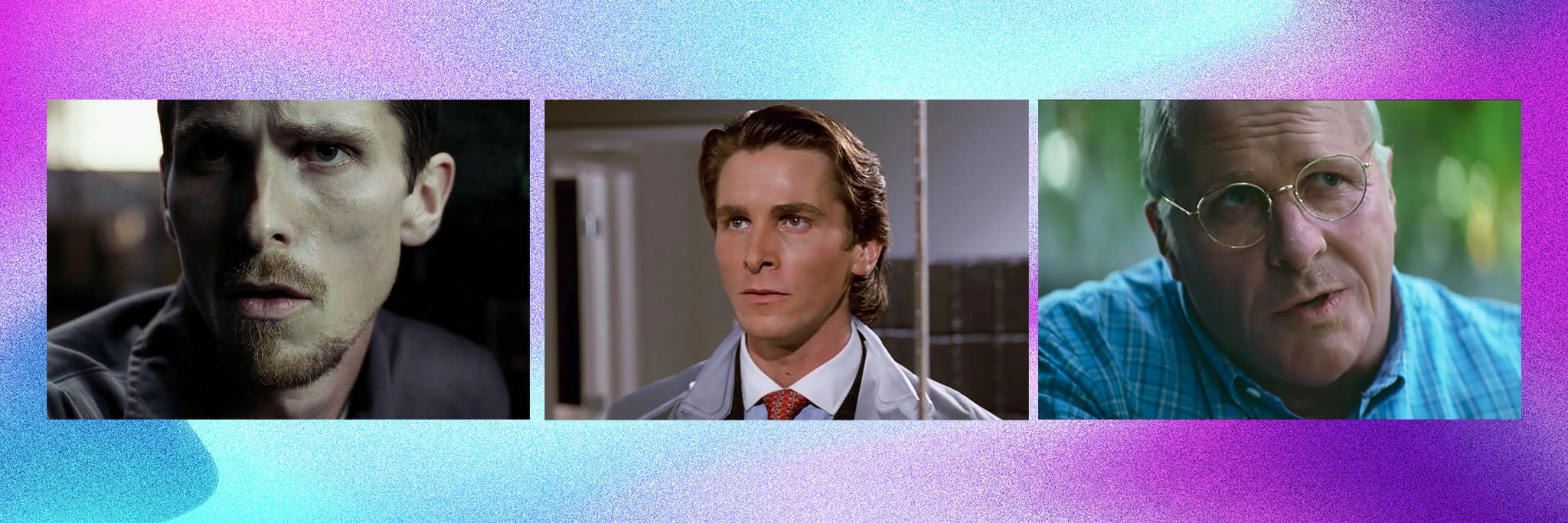
One of Britain’s best modern actors, Christian Bale is a performer of both gravitas and versatility. He’s always proved willing to transform himself aesthetically for a role – becoming skeletally thin for sections of The Machinist (2004) and putting on 40lb (and some prosthetics) to play Dick Cheney in Vice (2018). If there’s an air of showiness or gimmickry to this sort of practice, then there’s nothing gimmicky about Bale’s actual work on screen. He is a full-body actor, capable of elevating mediocre fare to vibrant watchability (The Big Short) and, as with American Psycho or The Prestige, coaxing greatness out of stronger material. It’s a credit to Bale’s artistry that he was able to play Bruce Wayne in a trilogy that many believe to be cinema’s definitive Batman adaptation – while never letting the role define him. LC
13. Isabelle Huppert
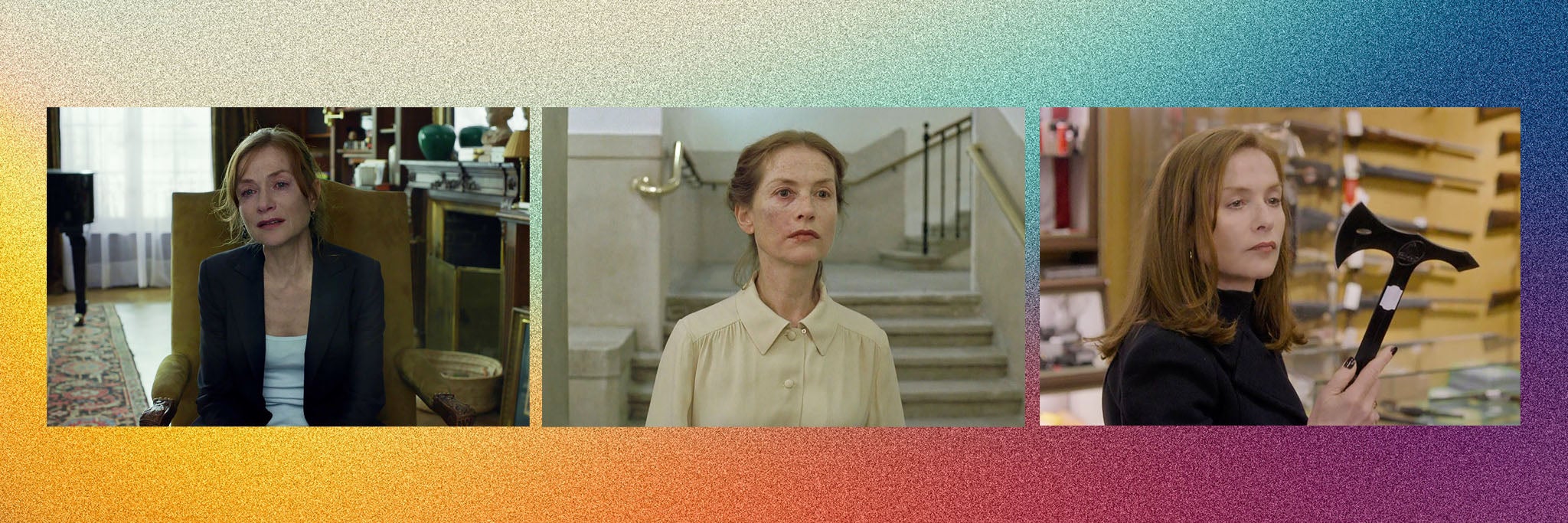
What a fearless actor Huppert is. The great French screen diva is now in her seventies and has trod a thrilling path since her 1972 debut in the romance Faustine et le Bel Été (in which Isabelle Adjani, long considered her rival, also appeared). She’s simply unforgettable in Michel Haneke’s The Piano Teacher (2001) as a sexually repressed woman who acts upon her sadomasochistic fantasies with one of her students – for which she won the Best Actress award at Cannes but went unrecognised at the Oscars. They finally did notice her uncompromising performance in Paul Verhoeven’s controversial rape-fantasy Elle in 2016. Huppert is prepared to take any role right to the edge; there’s no one like her. CH
12. Natalie Portman
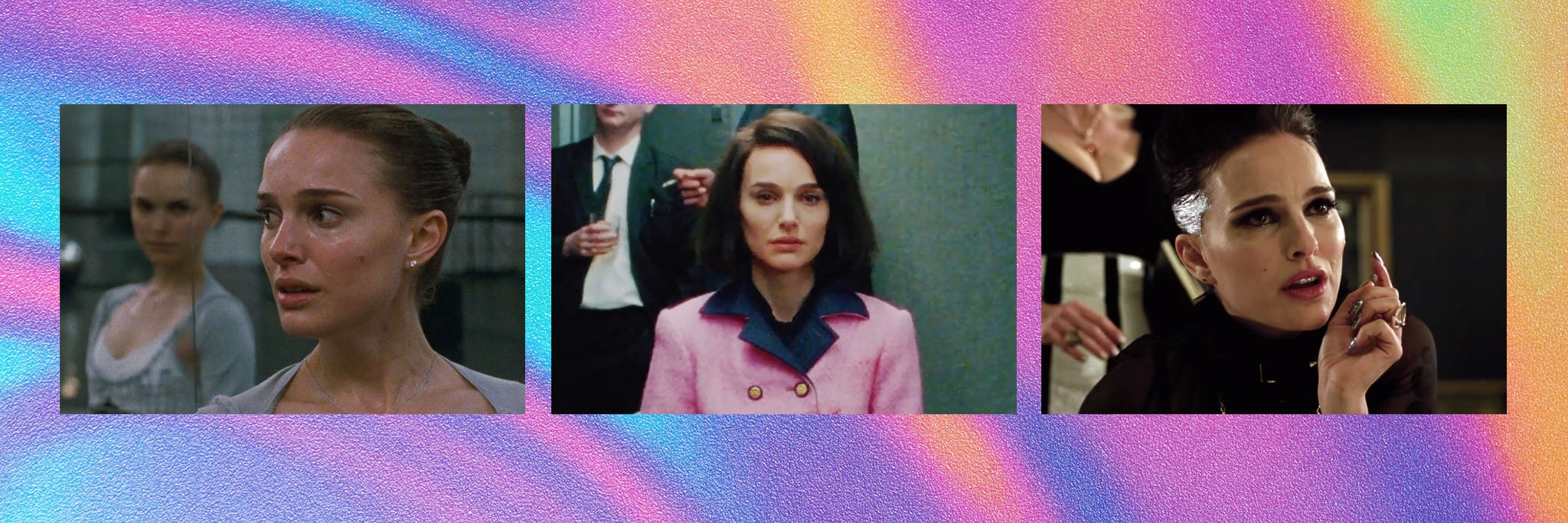
Once George Lucas has made you look like a terrible actor three times over in Star Wars prequels of varying shoddiness, I suppose things can only get better. That’s presumably what happened to Natalie Portman, who began the 21st century floating around space in a barrage of insane outfits, before becoming one of Hollywood’s boldest, bravest movie stars. Portman loves a big swing, and performance choices that always feel perilously close to tumbling off a cliff edge into horridness – the brittle baby voice in Black Swan, the arch, old-money register of Jackie, her smack-talking bravado in Vox Lux, the eerie uncanniness of her ruthless TV star in May December. It’s rare today to find an actor who doesn’t seem interested in naturalism, who understands that some of the most exciting acting is when you feel as if you’re watching someone throw big, heavy objects at the wall just to see what happens. AW
11. Willem Dafoe
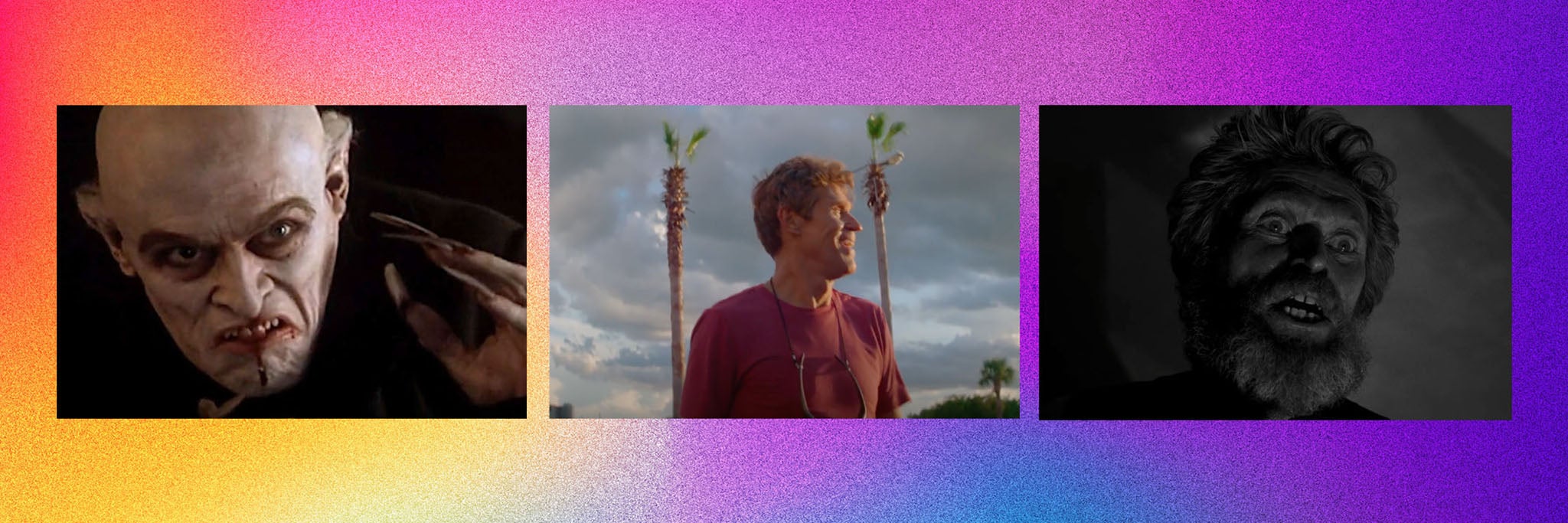
That great sinewy face of Willem Dafoe’s can be twisted into something ghoulish or comedic, a monstrosity or a beacon of mundanity. He’s oddly timeless as a performer, as at home in high-camp period horror such as The Lighthouse or Nosferatu as he is in comic book movies (The Green Goblin in Spider-Man!), rough-edged indies such as The Florida Project or the most conventional, commercial features around (The Fault in Our Stars). He has been a vampire and a vampire hunter; the weirdest person you’d ever encounter and the most shatteringly human. Auteurs adore him. He’ll do absolutely anything for a paycheck (Aquaman, anyone?). He is always sturdy, interesting, dependable. What a cruel world it’d be without him in it. AW
10. Florence Pugh
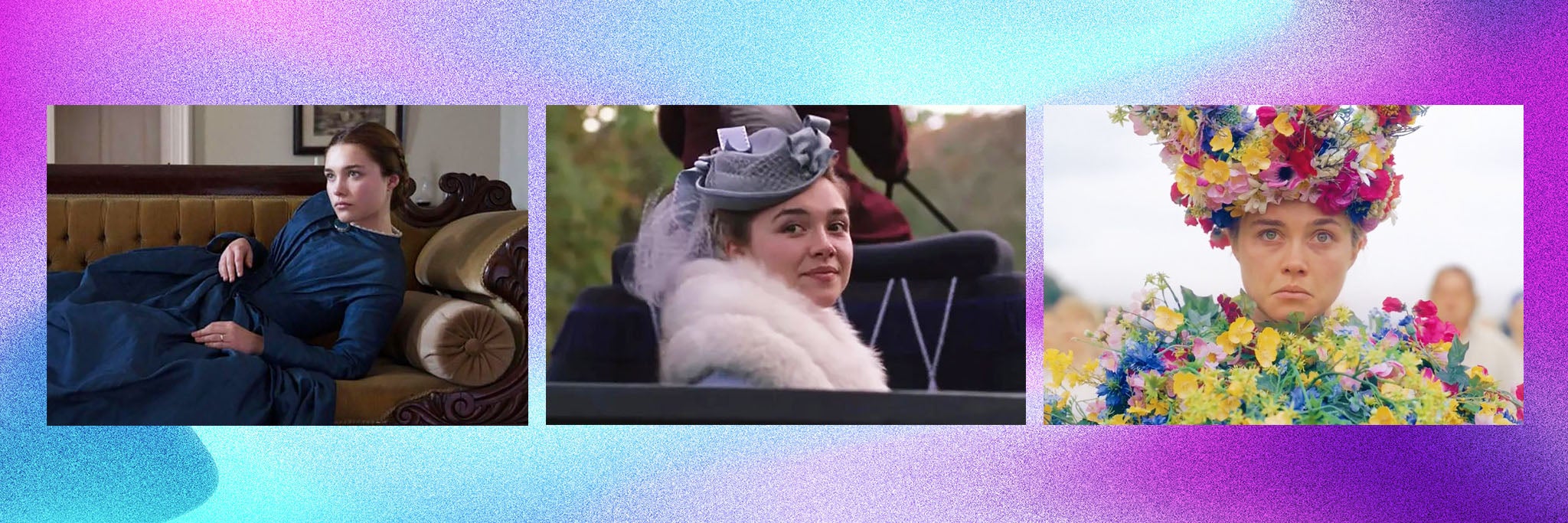
The youngest person on this list, Florence Pugh has already shown herself to be a generationally gifted actor. There were those who almost called it from her breakout role in the dark period drama Lady Macbeth; others only clocked it when she stole every scene in Little Women as the bratty Amy March. She’s got tremendous range – playing a northern wrestler in Fighting with My Family, an American opioid addict in Zach Braff’s A Good Person, and a chef with cancer in We Live in Time – but also great depth. As when she played Jean Tatlock in Oppenheimer, Pugh makes even small roles feel major. LC
9. Colin Farrell
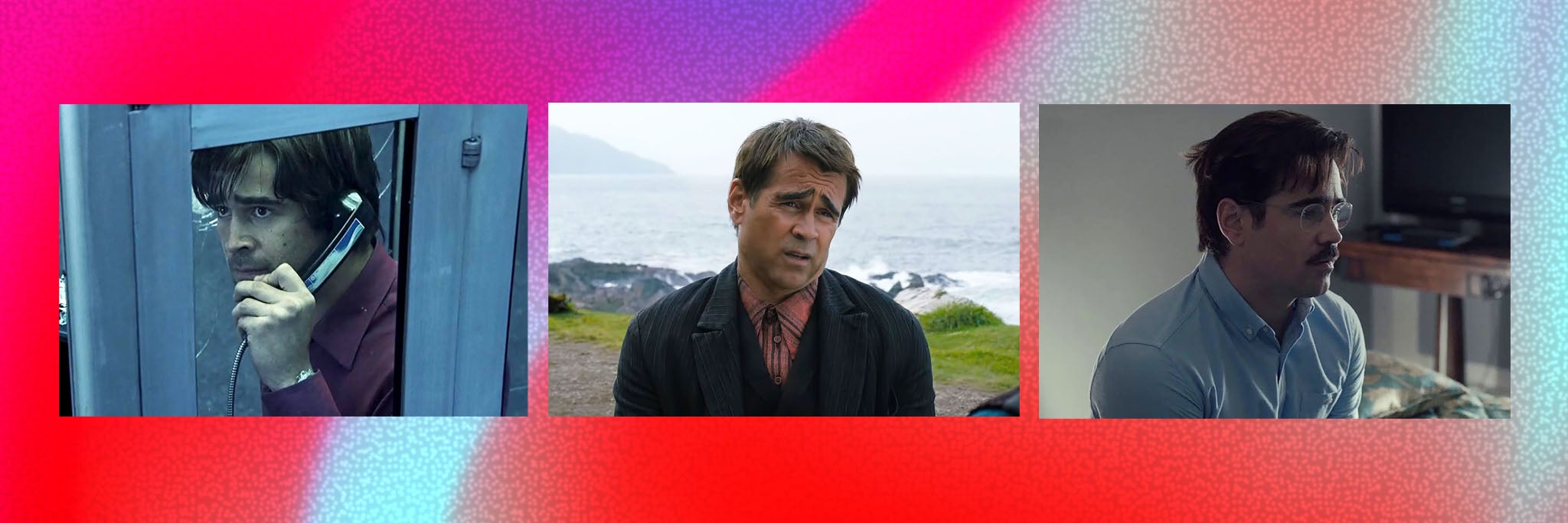
The reason people wang on about Colin Farrell’s early time in the spotlight is primarily because it’s just such a cool story: swaggering Irish party boy with a sex tape suddenly becomes an incredibly respected character actor, zeroed in on by auteurs and geniuses, the power of his superhuman charisma used for good instead of evil. It’s important to give credit where credit’s due: Farrell was very good at the early Noughties movie-star thing, bringing a degree of cocksure sweatiness to the likes of Phone Booth, Miami Vice and Minority Report. But he’s at his best when he lets his defences down. His work with Yorgos Lanthimos (The Lobster), Sofia Coppola (The Beguiled) and, most significantly, Martin McDonagh (In Bruges, The Banshees of Inisherin) orbits around his blemished, luckless vulnerability, that crack in the armour that makes him so unexpectedly sweet on screen. He just seems fundamentally decent, doesn’t he? AW
8. Cate Blanchett
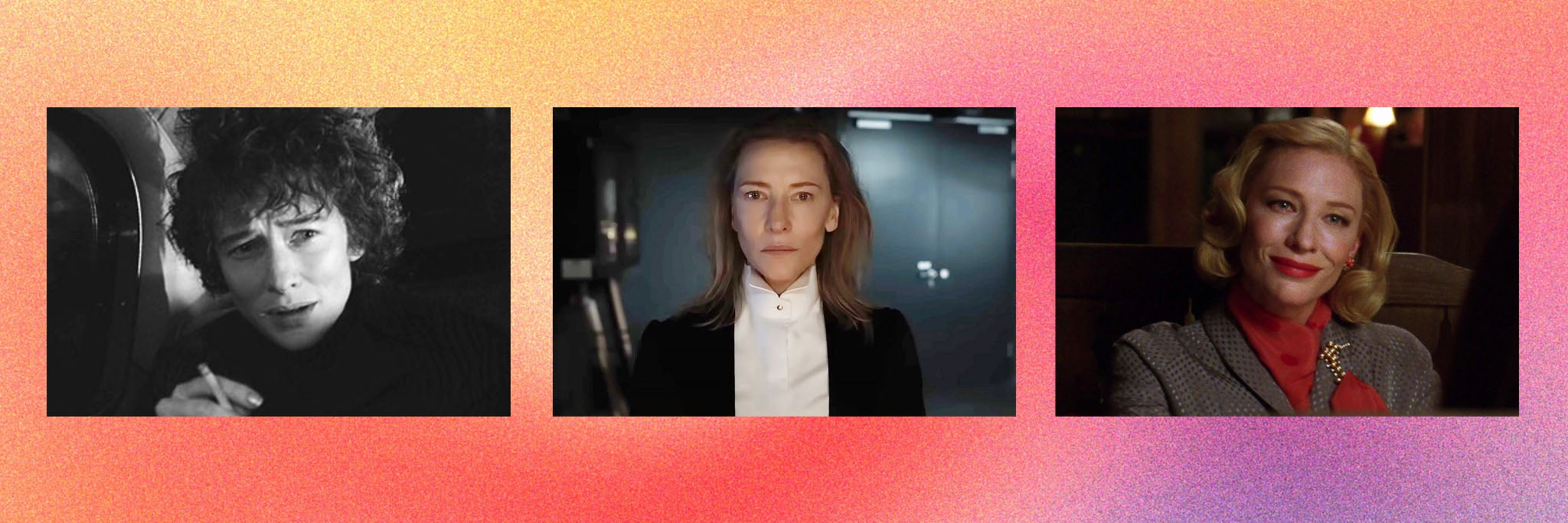
To say the Australian actor has range would be understating things almost to the point of irony. Blanchett has an almost bewildering breadth of talent that allows her to forge one memorable character after another. She’s celestially pure as Galadriel in the Lord of the Rings trilogy (2001-3); implausibly Dylanesque in I’m Not There (2007); deeply romantic in Carol (2015); imperious in Tár (2022); the list goes on. Blanchett is a subtle and intelligent actor, always precise, and blessed with a charisma that allows her to step with ease into blockbuster territory, from her KGB agent Irina Spalko in Indiana Jones and the Kingdom of the Crystal Skull (2008) to her Goddess of Death Hela in Thor: Ragnarok (2017). Rumours of retirement sometimes swirl around her; let’s hope they’re not true. CH
7. Song Kang Ho
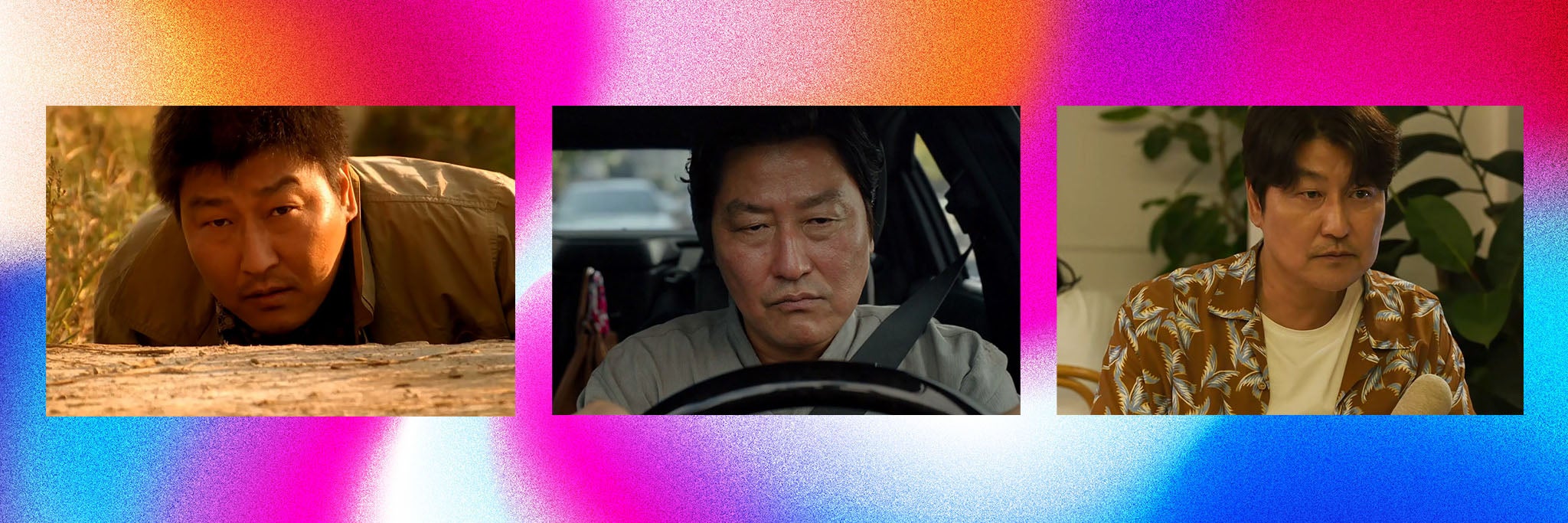
Western audiences will know Song Kang Ho, most likely, for his role in the 2020 Best Picture winner Parasite. But it’s in his first collaboration with Bong Joon Ho, Memories of Murder (2003), that you’ll find a single shot that best captures the magnificent irony at the heart of his work – that Song, more than any other, can project helplessness with complete precision and control. The actor is one of the best-known faces of New Korean Cinema, beloved by Bong, Park Chan Wook and Kim Jee Woon. In Memories of Murder, he plays a detective in rural South Korea, thwarted in his attempts to catch a serial killer. He returns, years later, to the crime scene, to be confronted with a witness, a small girl, who can only describe the man as “ordinary”. Song looks, wild-eyed and desperate, to the audience – the film was inspired by a real killer, who at the time had yet to be caught. Could he have returned here, to this film, to look upon his evils? Song’s features speak plainly to those fears. CL
6. Daniel Kaluuya
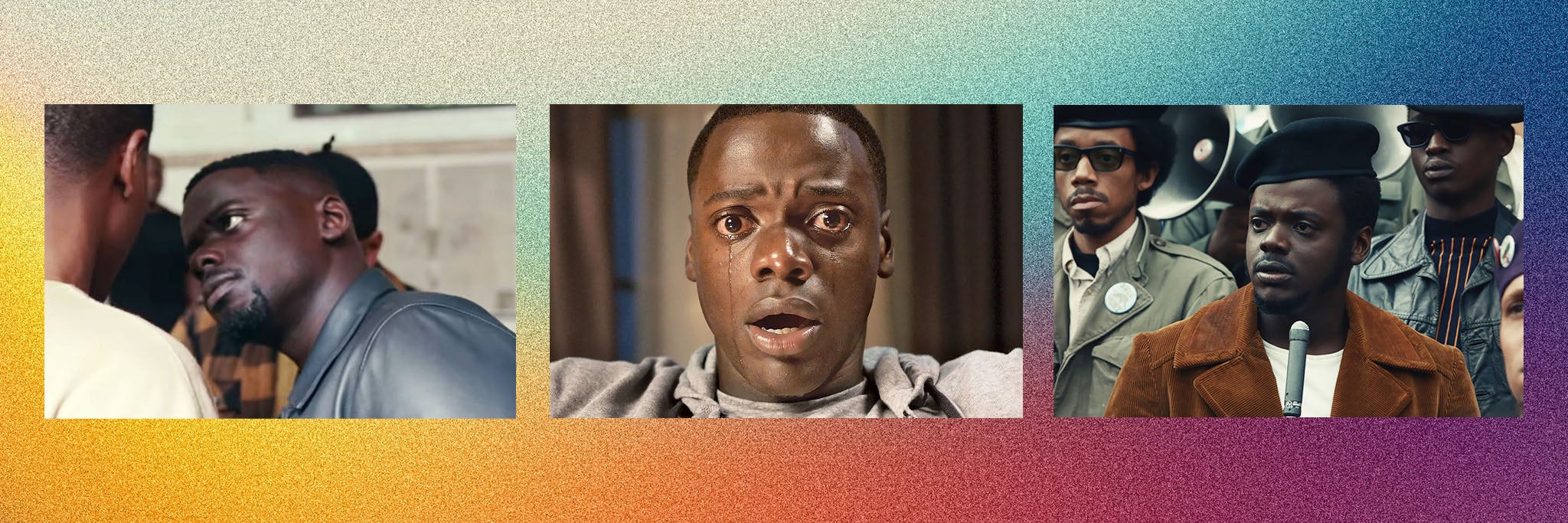
After Steve McQueen cast Daniel Kaluuya in his 2018 thriller Widows, he said of the actor: “He has that gift you don’t see often, a presence even in his stillness. You feel what he is feeling, you see what he is seeing.” In that film, Kaluuya plays the relatively minor part of a mob enforcer but it is his beautiful intensity, his determination to intimidate, his eyes (those eyes!) that are the most memorable thing about it. Those very eyes were the same, wide, tear-spilling pools that made the world wince in Get Out, one of the best and most important films of the 21st century. So much of Kaluuya’s work – from Queen & Slim to Judas and the Black Messiah to Black Panther, to Nope – is deeply humanistic, taking complex Black characters and presenting their experiences undiminished and undimmed. A truly radical star. EH
5. Nicole Kidman
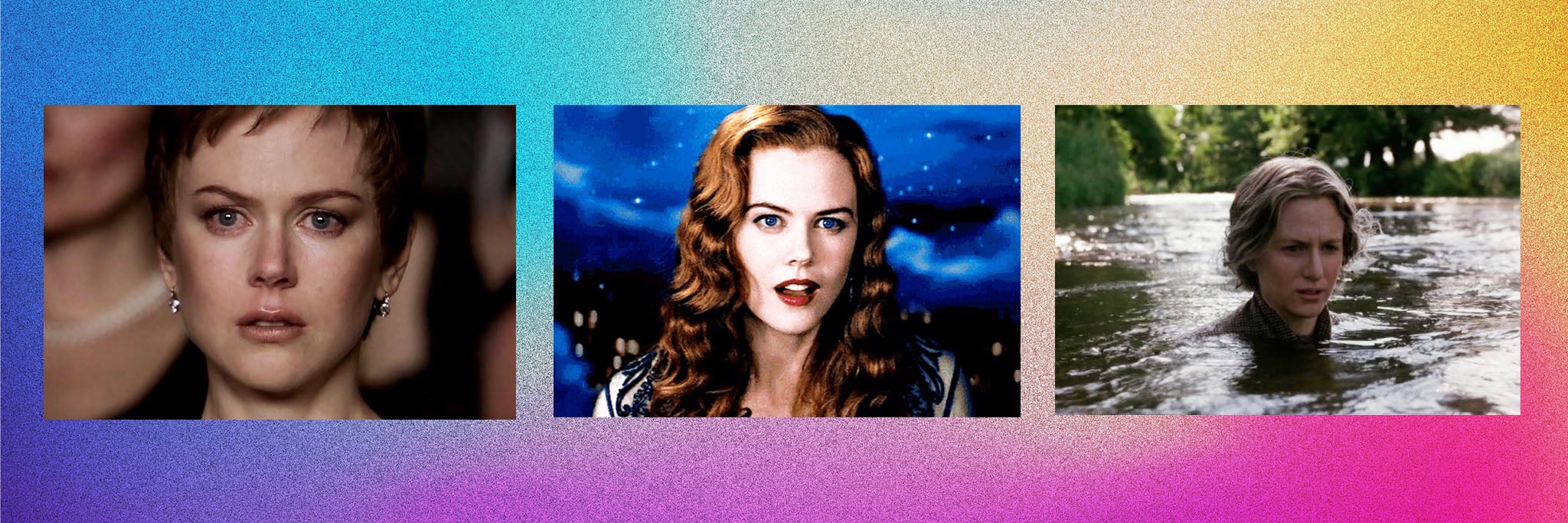
You can’t deny that Nicole Kidman has range. For proof, you only have to rewind to her consecutive Best Actress Oscar nominations at the Academy Awards in 2001 and 2002, which recognised two roles that could hardly be more different: her dazzling all-singing, all-dancing turn as a consumptive showgirl in Baz Luhrmann’s Moulin Rouge! and her winning portrayal of Virginia Woolf towards the end of her life in The Hours. She’s not afraid to go to places that other actors might baulk at – playing a woman convinced that her dead husband has been reincarnated as a 10-year-old boy in Birth, for example – and when it comes to her movie work, her filmography is so eclectic that there’s no such thing as a typical “Nicole Kidman role” (although arguably the opposite is true if you look at her TV resumé). No one throws themself into a role quite like Kidman does, whether that’s adopting an outlandish accent, a prosthetic nose or an intriguing wig; on a more serious note, though, her commitment to working with female filmmakers, collaborating with 15 over the past seven years, is admirable. The film industry is a far more interesting place with her in it. KR
4. Denzel Washington
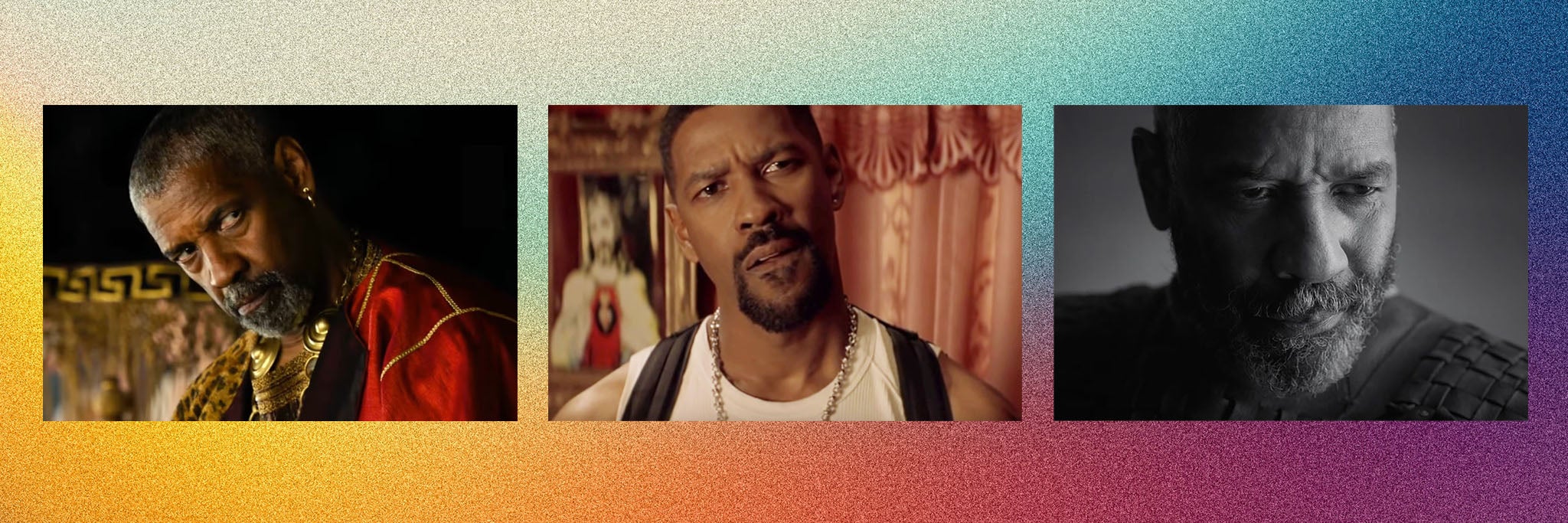
Few actors hold as much weight in Hollywood as Denzel Washington: the name itself seems to puff out its chest and jut its chin. That is, though, what you get when you’ve spent the last four decades, as Washington has, turning in some of the most indelible performances in recent memory. Washington brought his powerhouse Nineties star quality into the 21st century with films like American Gangster and Out of Time. That said, he doesn’t need high-flying action to shine. Just look at his crackling turn in Joel Coen’s The Tragedy of Macbeth for proof of that. As the tormented general, he’s understated and quicksilver in his ability to move through emotions. Between Macbeth, the fiery ending of Training Day, and most recently Gladiator 2, one thing is clear: the man knows how to monologue. And who knows? The best may still be yet to come. AN
3. Daniel Day-Lewis
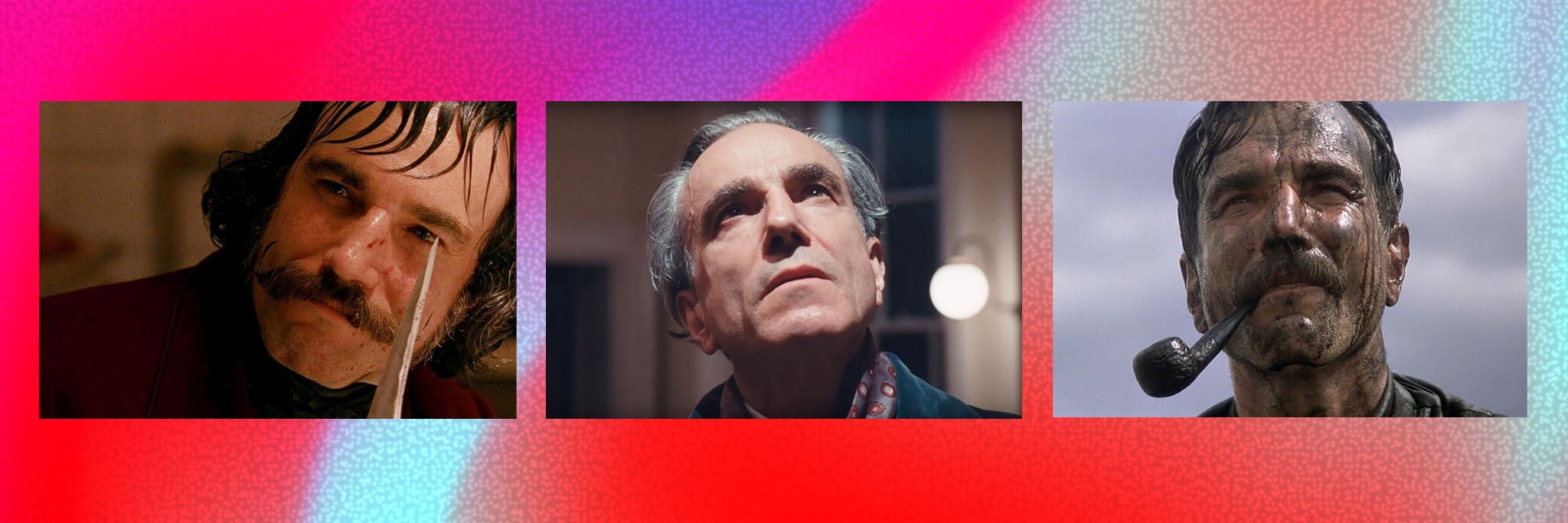
Ever since his performance as the Irish writer and artist Christy Brown, who was born with cerebral palsy, in My Left Foot (1989), Daniel Day-Lewis has become synonymous with a commitment to method like no other actor (though he would be unlikely to be offered that part today). This side of the millennium, he has taken the breath away with his screen portraits of 19th-century Protestant gangster Bill the Butcher in Scorsese’s Gangs of New York (2002) and ruthless oilman Daniel Plainview in There Will Be Blood (2007). Day-Lewis is adept at letting you foment pure hatred for his characters, though he took a different route into America’s Civil War president in Spielberg’s Lincoln (2012). He announced that his capricious, controlling 1950s society fashion designer Reynolds Woodcock in Phantom Thread would be his final role (he’d spent a year learning how to make a haute couture dress). The news that he intends to return next year in a film directed by his son Ronan is exciting, to say the least. CH
2. Emma Stone
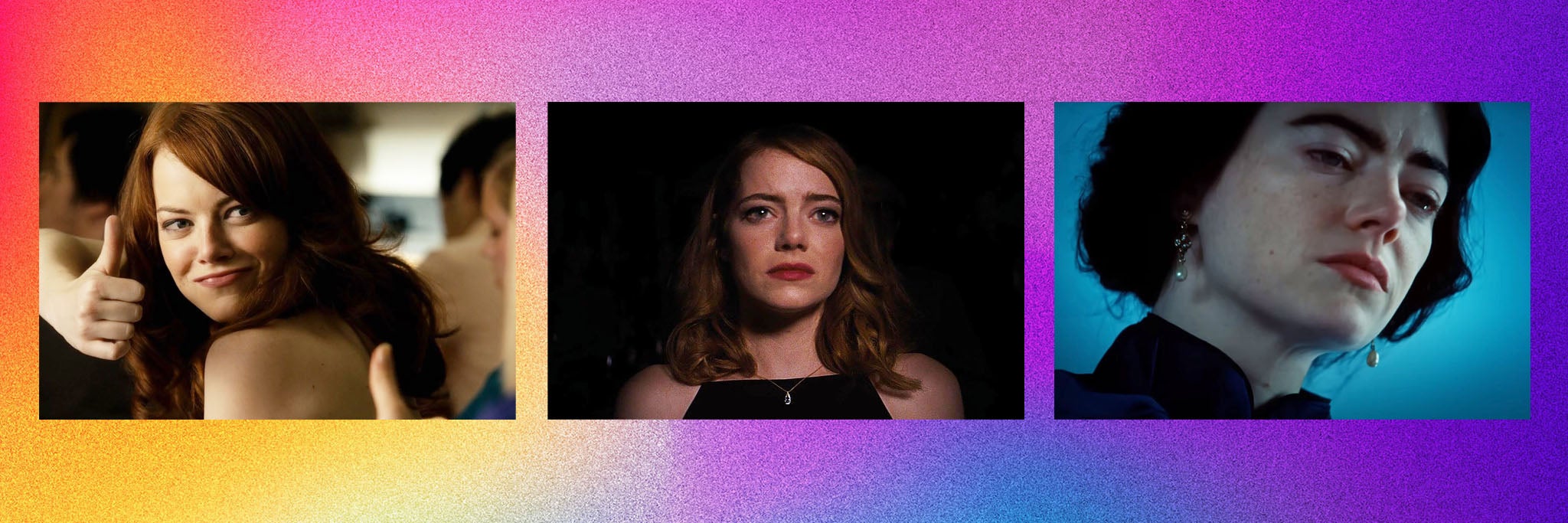
Is there a more exhilarating image than that of Emma Stone thrashing, thrusting and twirling her way across a Victorian ballroom in Poor Things? Perhaps the moment she gleefully spattered her love rival in The Favourite, Rachel Weisz, with the blood of a pigeon. Or when she danced at dusk in La La Land. At 36, Stone is one of the youngest actors on this list, but the pathos and mirth she invests in her roles suggests a long and rich life lived. Her transition from parts that made the world fall for her, in romcoms such as Easy A and Crazy, Stupid, Love, to her more recent foray into black comedy and gothic fantasy, show the Oscar winner masterfully subverting her girl-next-door origins with raw and fearless work. Her choices are always risky, always hungry – and always nourishing. EH
1. Philip Seymour Hoffman
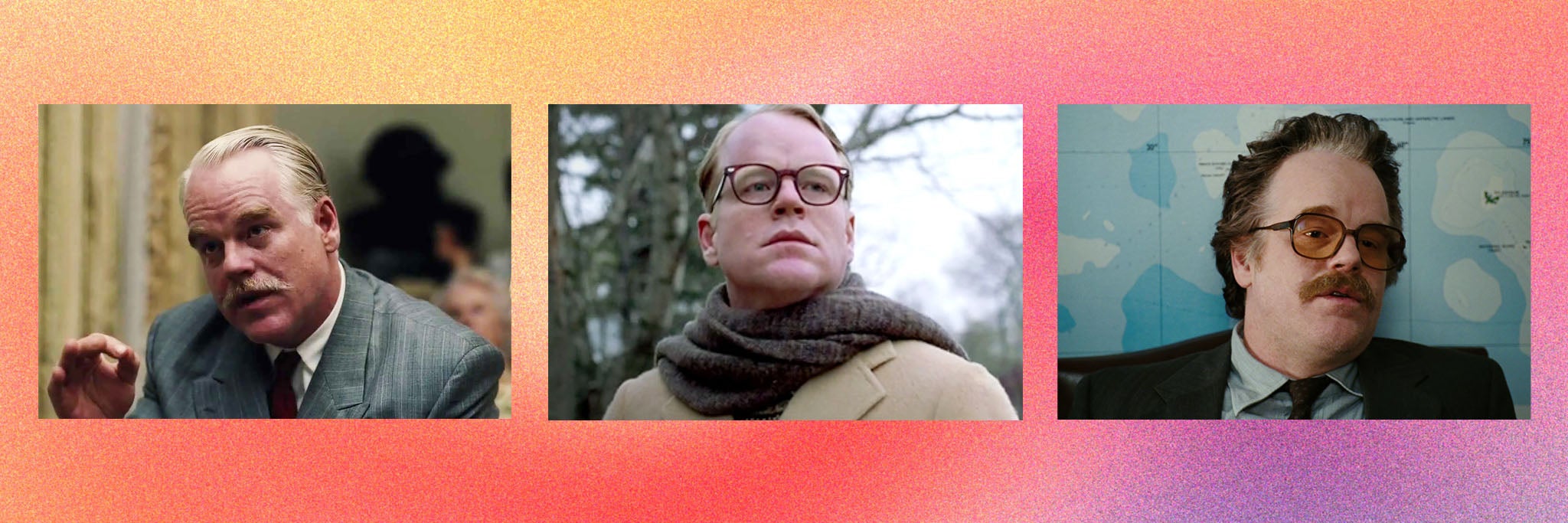
It’s a testament to Philip Seymour Hoffman’s sheer undeniable brilliance that this pick for the top spot almost feels too obvious. But obvious or not, there’s simply no overselling the late American actor’s body of work between 2000 and his death in 2014. He was staggeringly adaptable – shrewd and effete in Capote, domineering and fallible in The Master, jaded to a nub in A Most Wanted Man. When the material was flawed, he still found a way to spin it into genius – as the window-smashing spy in Charlie Wilson’s War, or the lead of the maudlin, offbeat God’s Pocket. But when the material was great – and it so often was – Hoffman rose to the occasion. In the headline of his obituary, The New York Times described Hoffman as an “actor of depth”. It seems like faint praise, perhaps, but it’s also profoundly true. He was an actor of seemingly fathomless empathy; not a second passed when you didn’t believe him. LC







